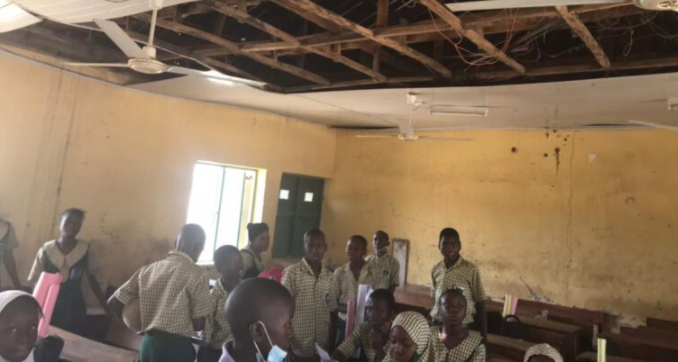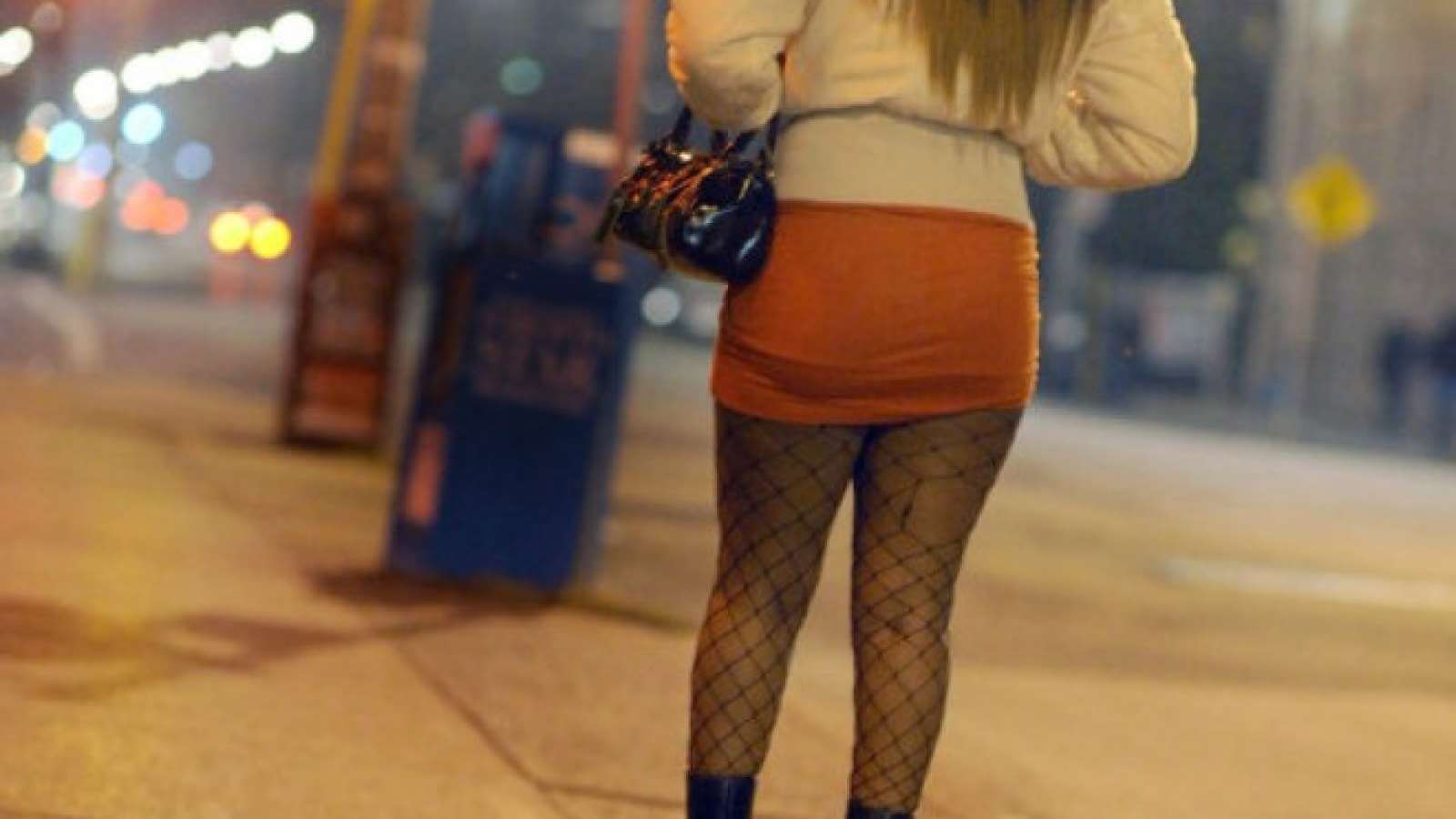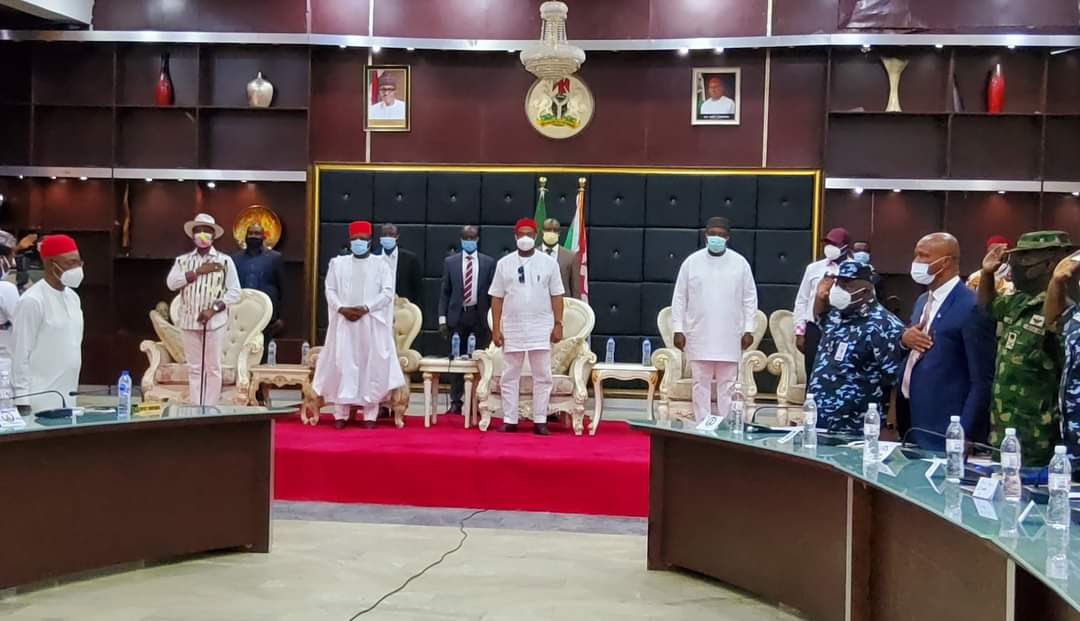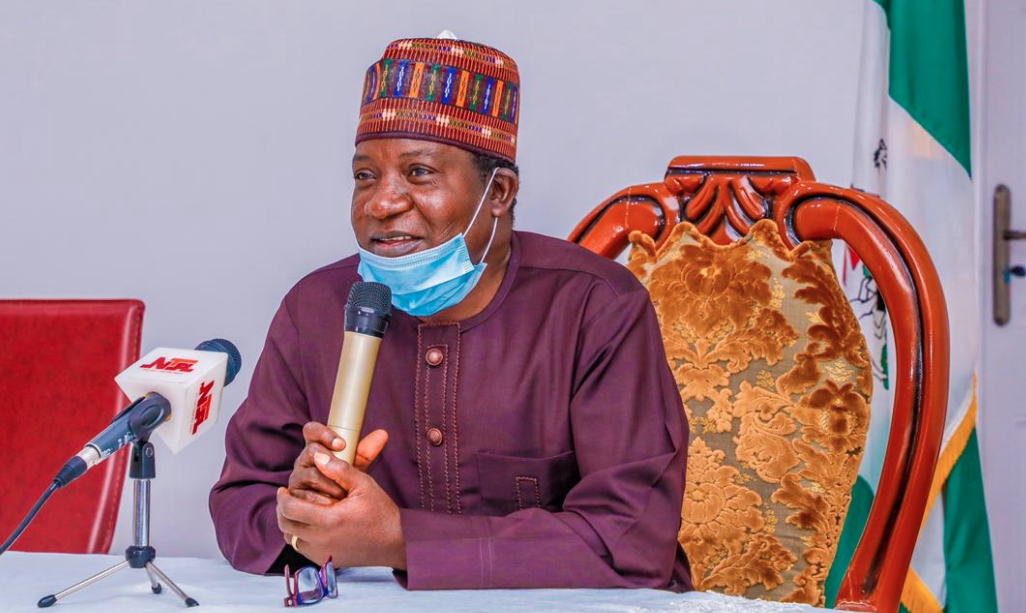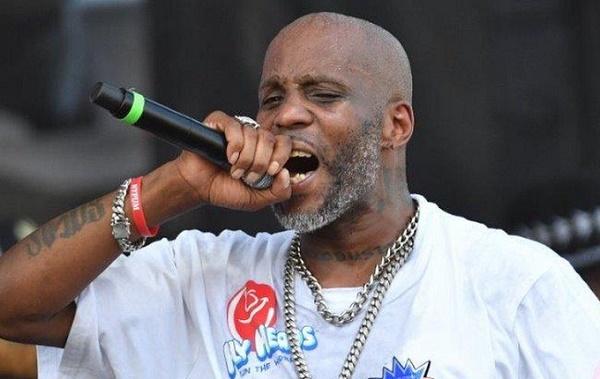In the federal capital territory (FCT), the country’s seat of power, leaders of tomorrow are learning in decrepit classrooms in insecure schools. But because the students desire to learn, they show up every day in the hope that gunmen will not invade their school; that the roof will not cave in; and rain will not come pouring down.
On October 12, 2020, schools across Nigeria reopened, several months after the COVID-19 pandemic hit the country. As most administrators took steps to comply with COVID-19 protocol, others were burdened with a perennial problem – dilapidation, decay, and safety risks.
These, and more, are what TheCable reporters discovered during a visit to three Local Education Agency (LEA) primary schools and four FCT secondary schools that are in desperate need of renovation and in some cases, outright demolition and rebuilding.
LEA PRIMARY SCHOOL, KAWU, BWARI
Advertisement
With two classroom blocks and a staff room that are falling apart as well as a make-shift toilet in a sorry state, LEA primary school in Kawu has seen better days. Adom Dikko, a volunteer staff, told TheCable that he attended the school as a child and no renovation had been done since then.
Visibly frustrated, he lamented: “This is the same staff room that has been used since, though we have been complaining. Even though the local government chairman was told to renovate this school because this is the first primary school among the 36 in Kawu, he didn’t.”
According to Dikko, there is also a problem of classroom shortage. He explained that the buildings were no longer enough for the over 400 pupils, hence the early years’ pupils have been learning in a nearby Islamic school for the past three years.
Advertisement
In the equally dilapidated staff quarters just opposite the school, TheCable spoke to Ifeanyi Eugene, who said he has been a teacher in the school since 2013.
When asked if there was possible hope of renovation, Eugene sighed deeply and paused for some seconds as if in deep thought.
Eventually, he said: “There are some places you’ll go and they have three blocks of classrooms, here we have just two. I met them here and those are the only ones we have.”
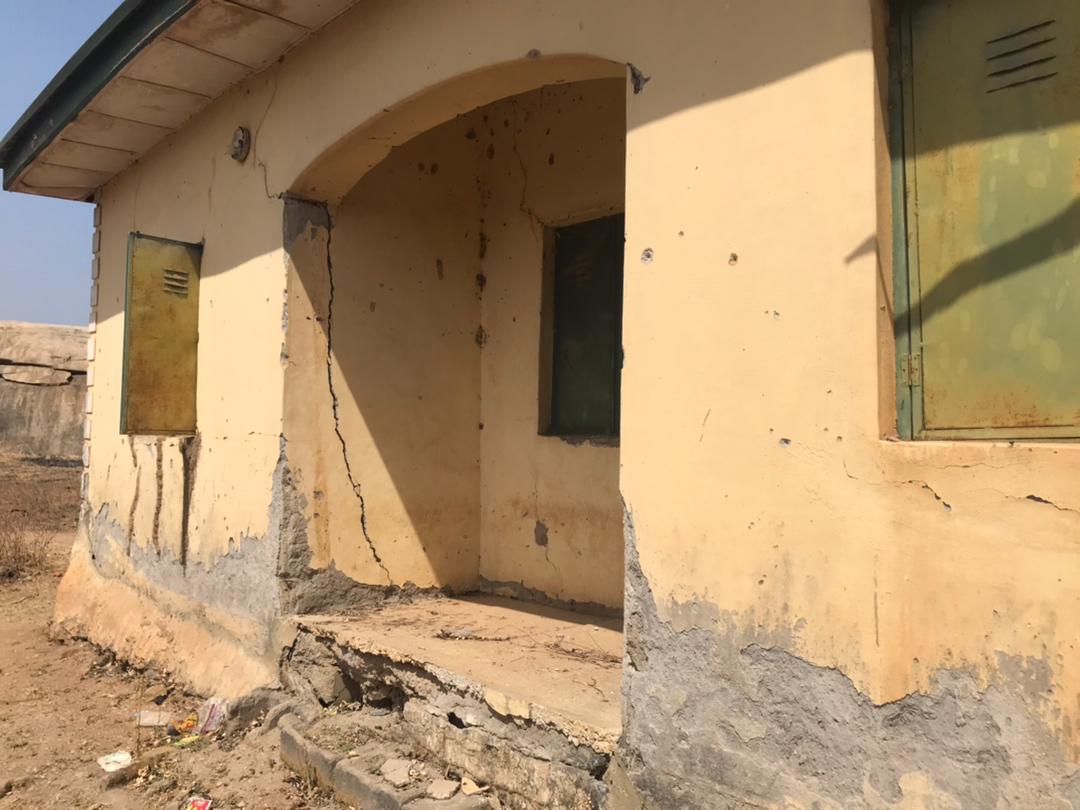
Advertisement
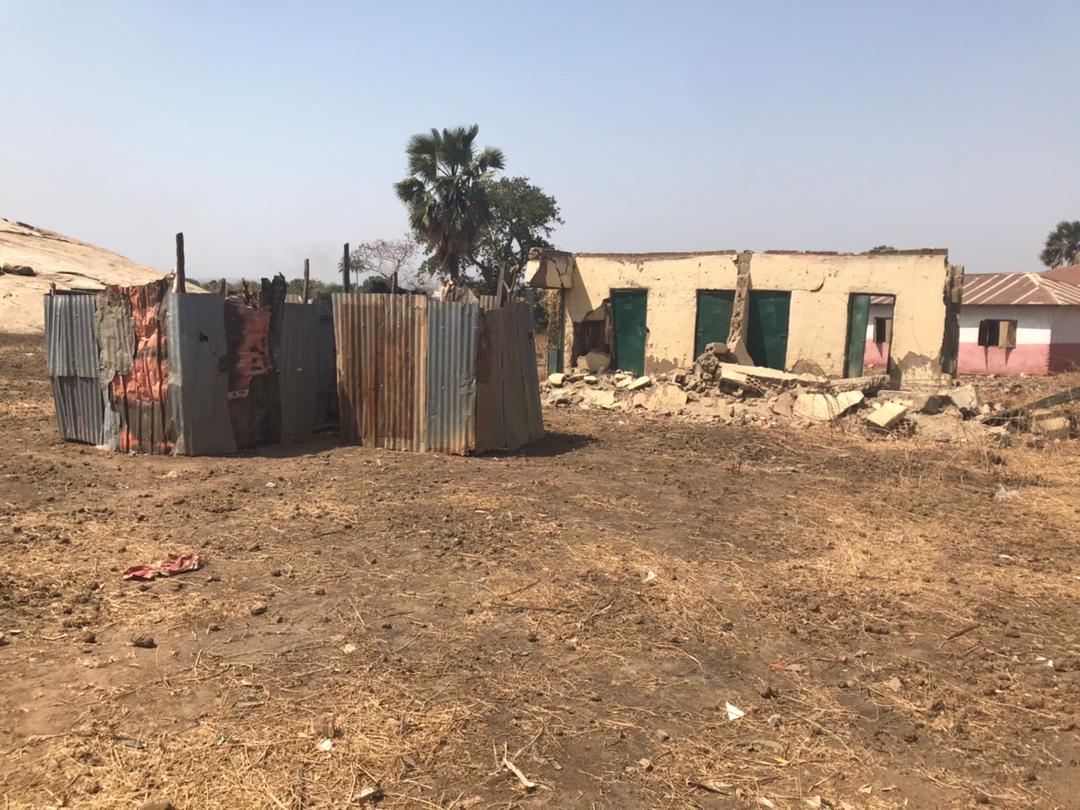
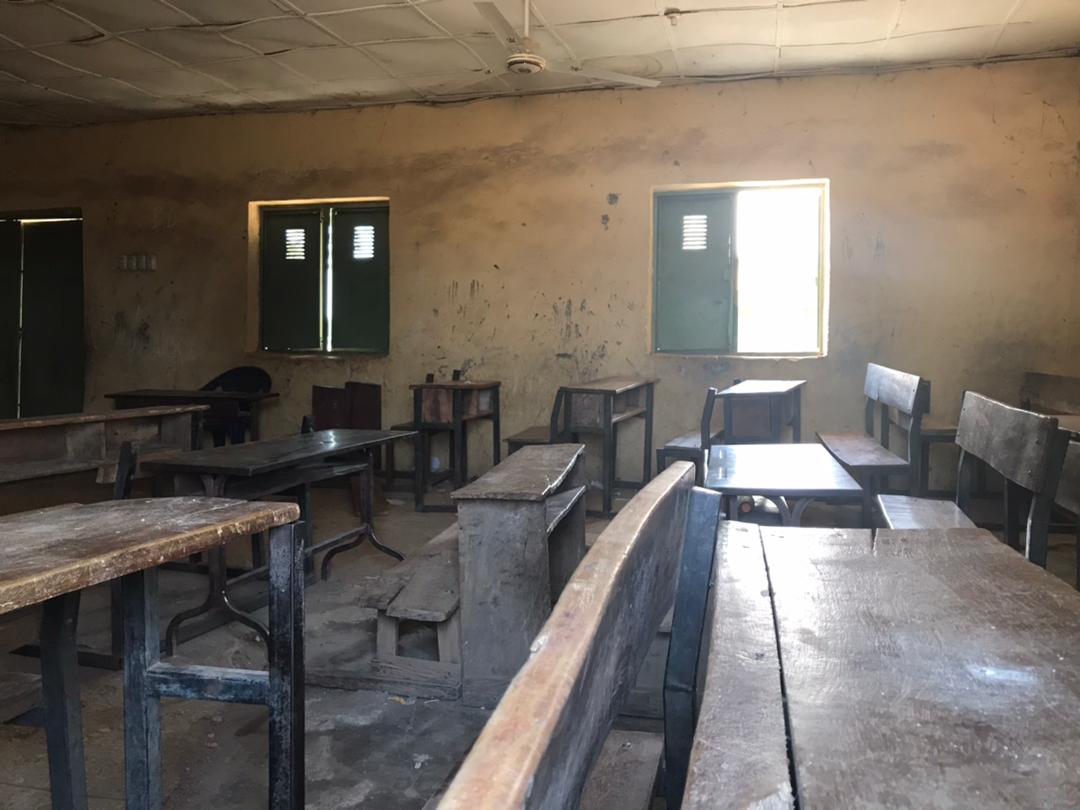
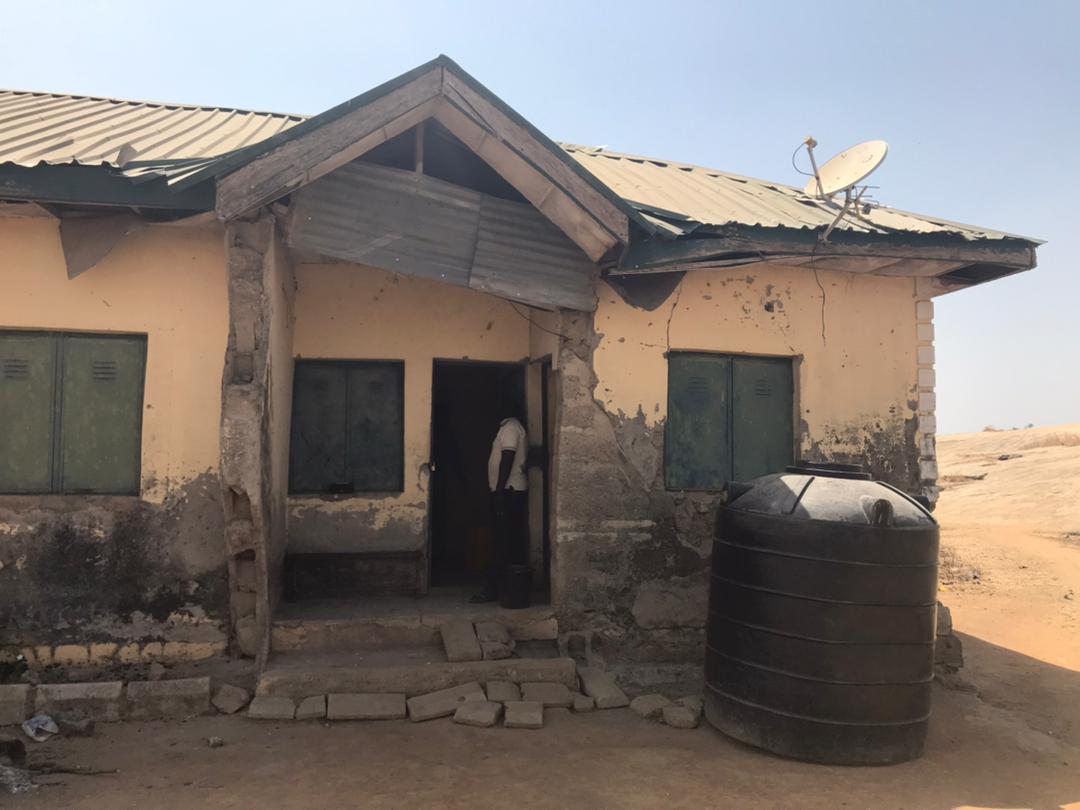
JUNIOR SECONDARY SCHOOL, KAWU, BWARI
At the Junior Secondary School, Kawu, the reporter was greeted by a view of the administrative block and an uncompleted building.
An employee who pleaded anonymity said the building was supposed to be a science laboratory but had been abandoned since 2016.
Taking a quick tour of the school, the reporter saw abandoned buildings left to rot — classrooms which should have been renovated and put to use.
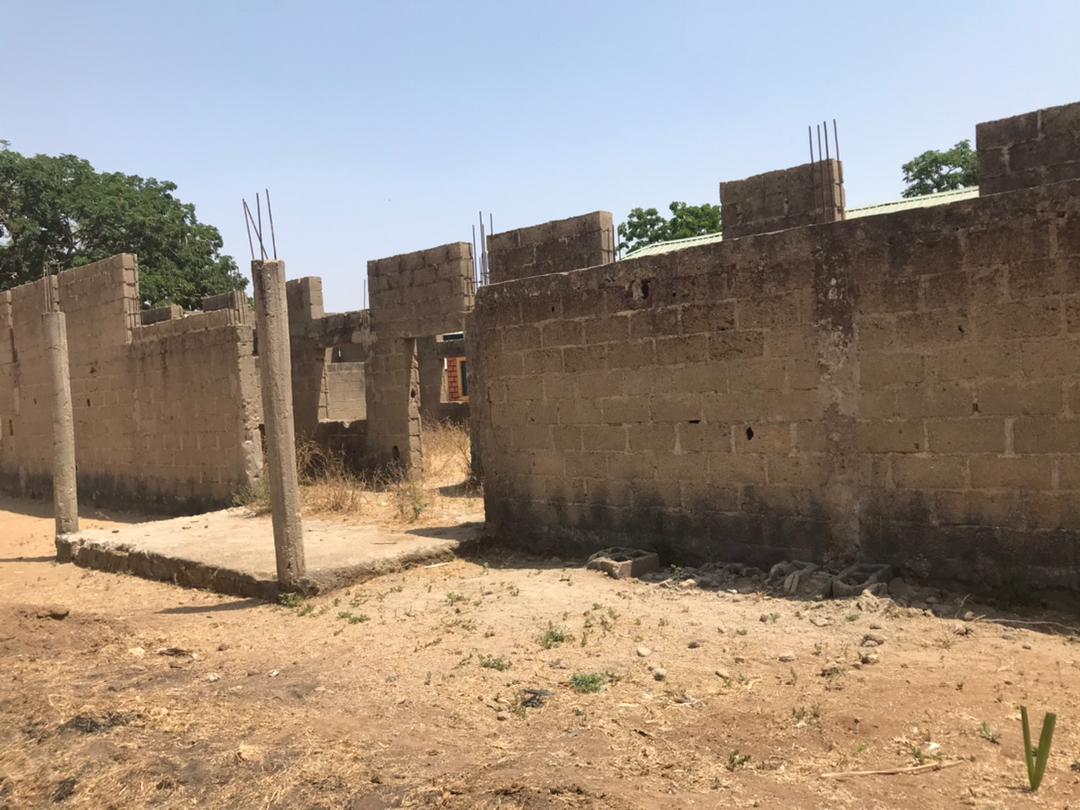
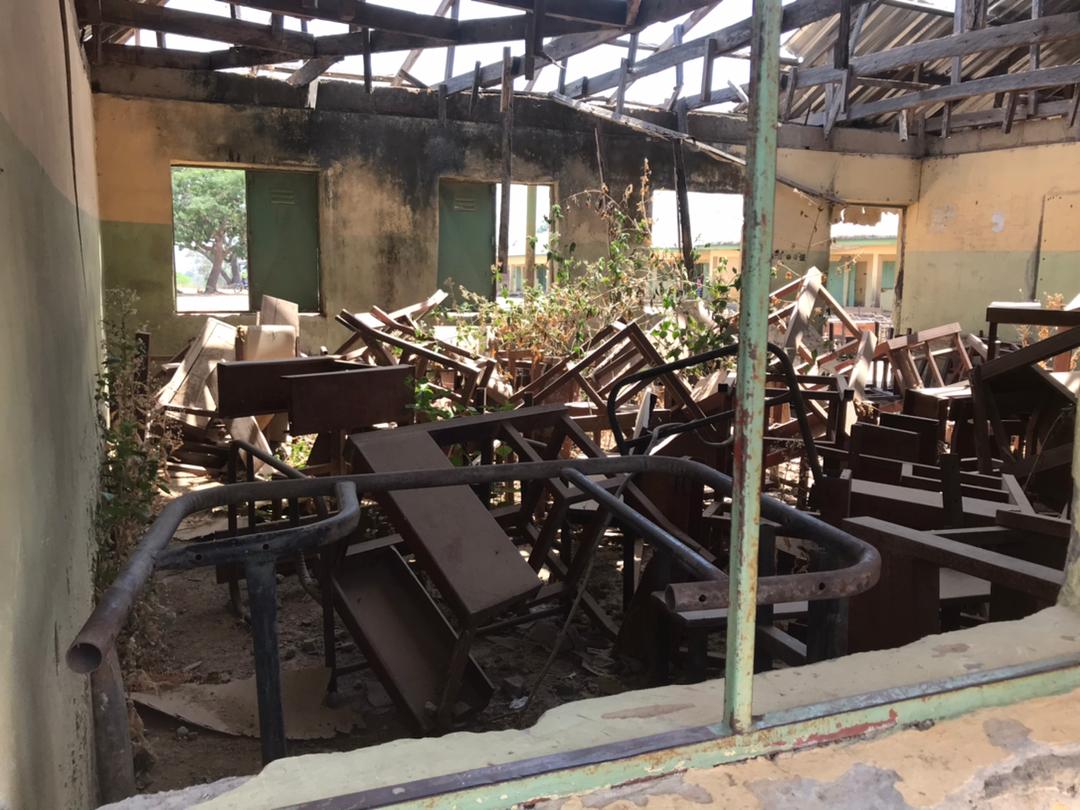
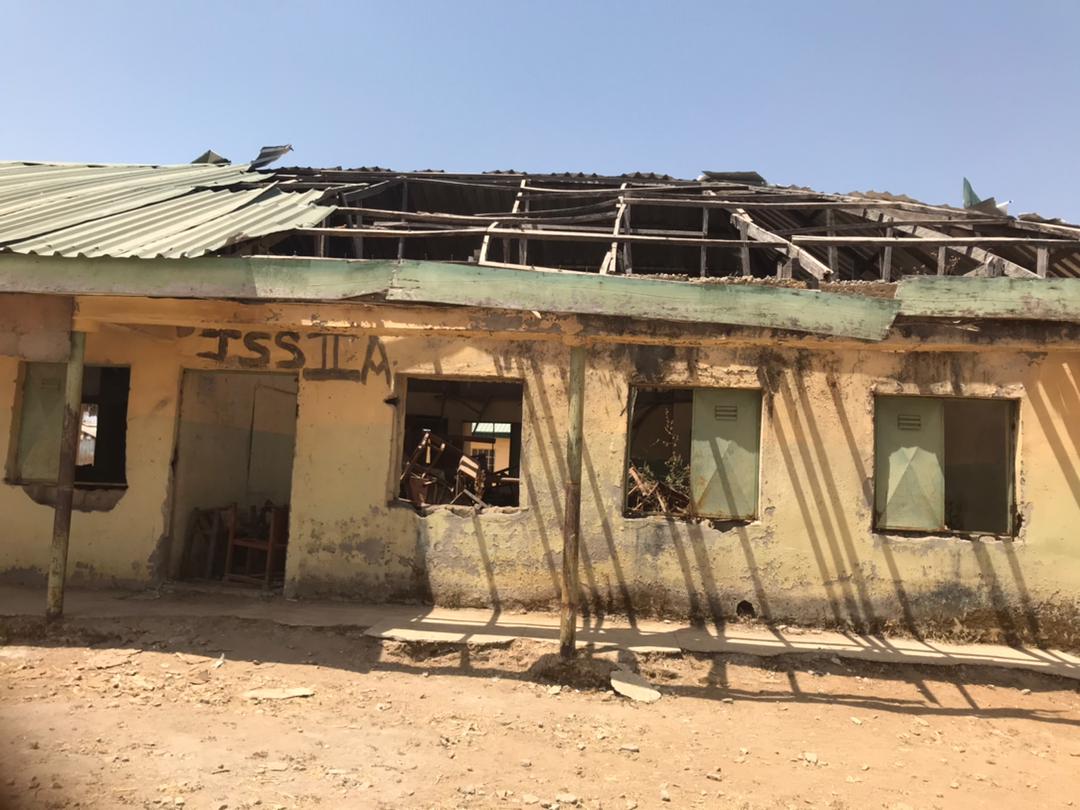
Advertisement
SENIOR SECONDARY SCHOOL, KAWU, BWARI
In the same compound lies the senior secondary school — but it was not in a better shape. With its damaged ceilings, roofs, and abandoned classrooms, it was worse than the junior school.
Advertisement
Monday Wisdom, a student, said learning is disrupted by the leaking ceilings during the rainy season.
“When it rains, our books get spoilt. People have been complaining to the principal and he said they would repair it but we have not seen any action,” he said
Advertisement
Adamu Koko, the acting district head of Kawu, told TheCable that the community is disturbed by the state of the schools, adding that the environment is not conducive for learning.
“This school has been like this since its establishment, even the staffroom you see was built by the community,” he said referring to the primary school.
Advertisement
He said some community members recently paid a visit to the chairman of the secondary education board, who said he was waiting for the approval of the 2021 budget and promised to subsequently take action.
“We hope the government will see your report and help us,” the acting district head added.
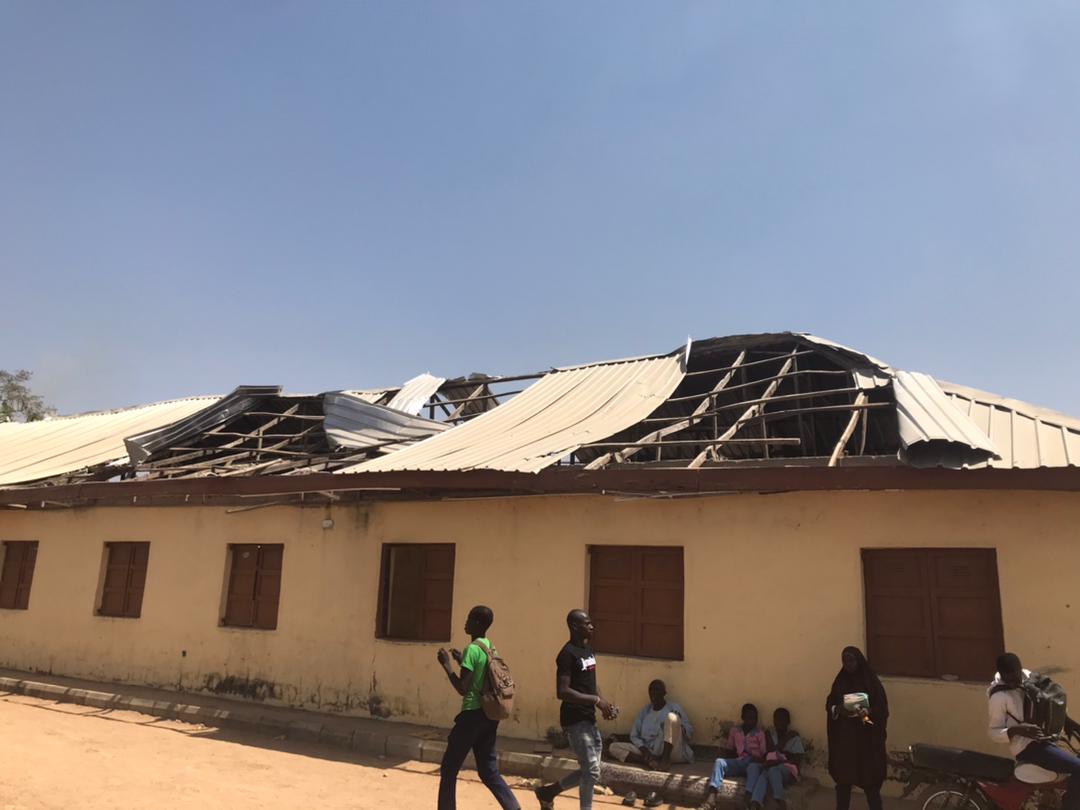
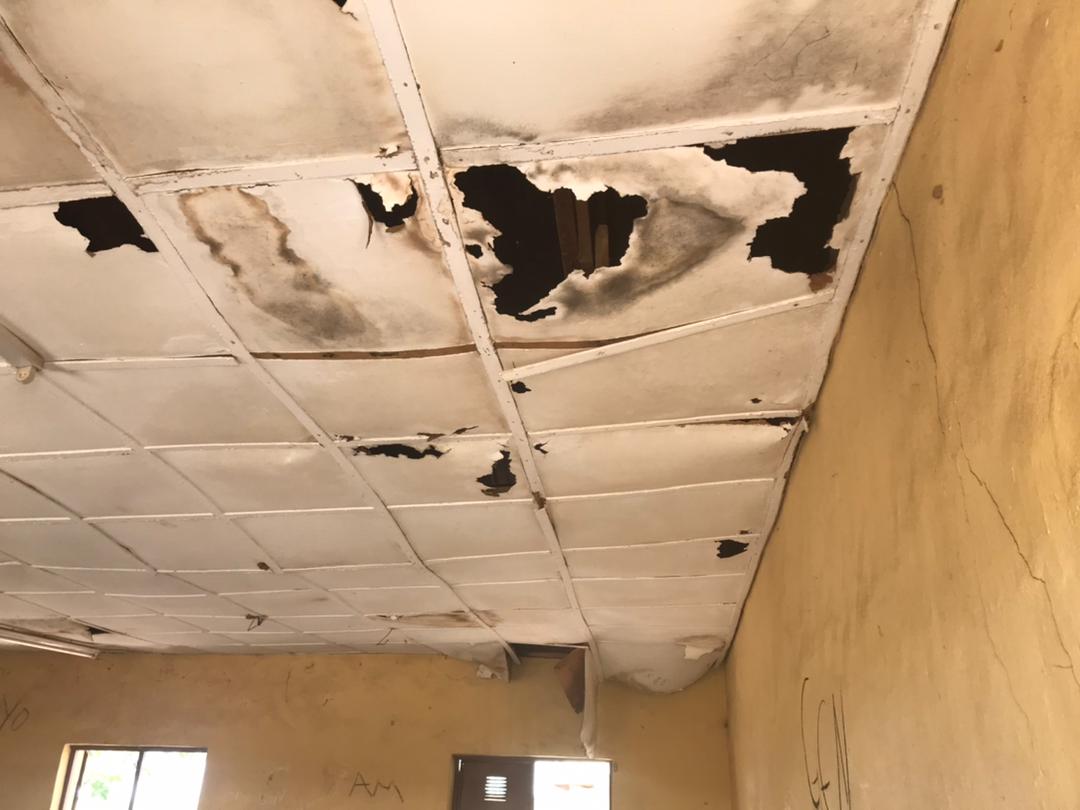
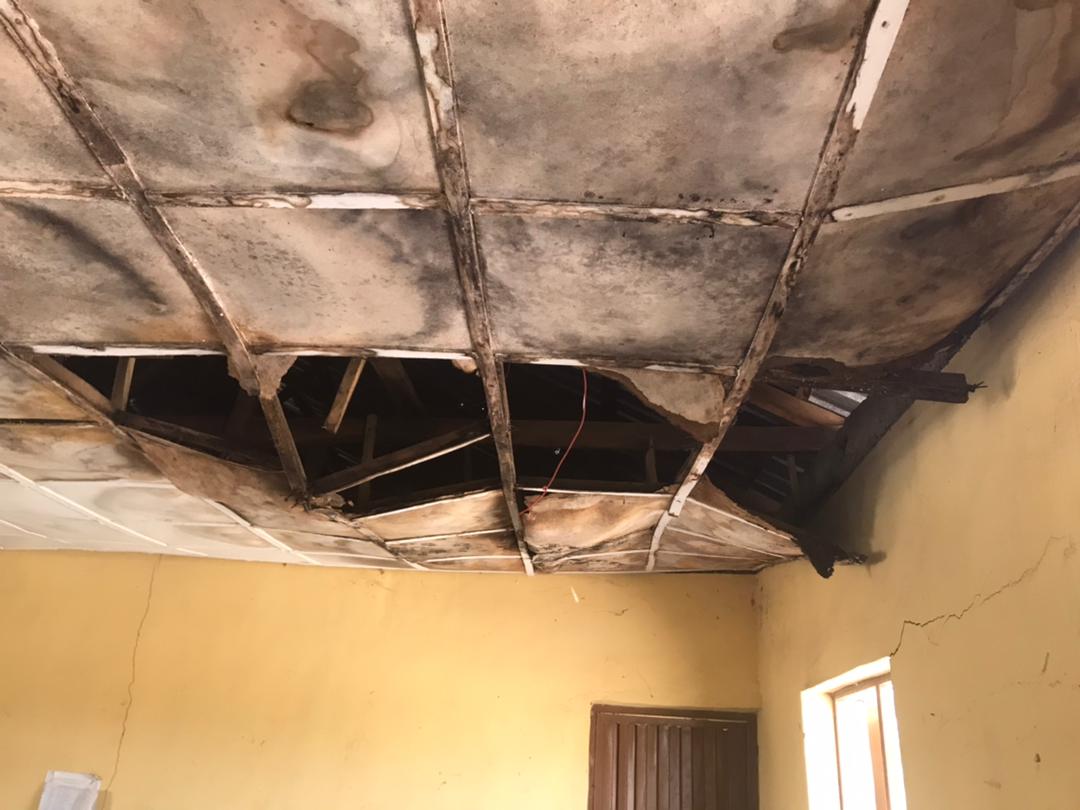
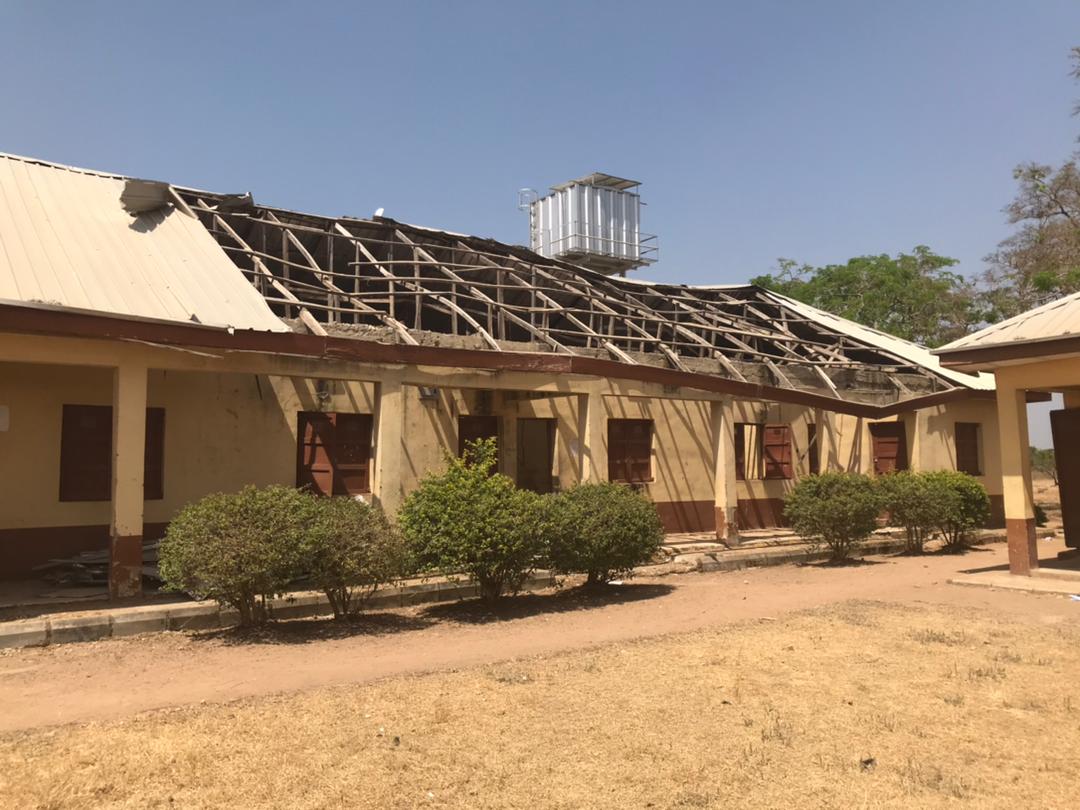
JUNIOR SECONDARY SCHOOL, DUKPA, GWAGWALADA
In the Gwagwalada area council of FCT, TheCable paid a visit to Junior Secondary School, Dukpa. On a casual glance into the school, it appeared to be in a good state — but while inside, the ruins surfaced. Damaged and abandoned classrooms, missing roofs, broken doors, and leaking ceilings could be seen at almost every turn.
A staff of the school who preferred to remain anonymous, however, bragged that the school, even in its state, is still better than others of its kind around the FCT.
“I’m sure you’ve gone to other schools and you can see our school is still better than others in Abuja,” he said.
Some of the students said they live in constant apprehension during the rainy season.
“Our class has a leaking roof and a missing door. During rainy season, the rain wets our books and bags. And because we can’t close our doors, if anyone forgets anything in the class and goes home, it’s already missing the next day,” a student said.
Reacting to the student’s complaint, the staff said “don’t mind them; they are not facing any challenge”.
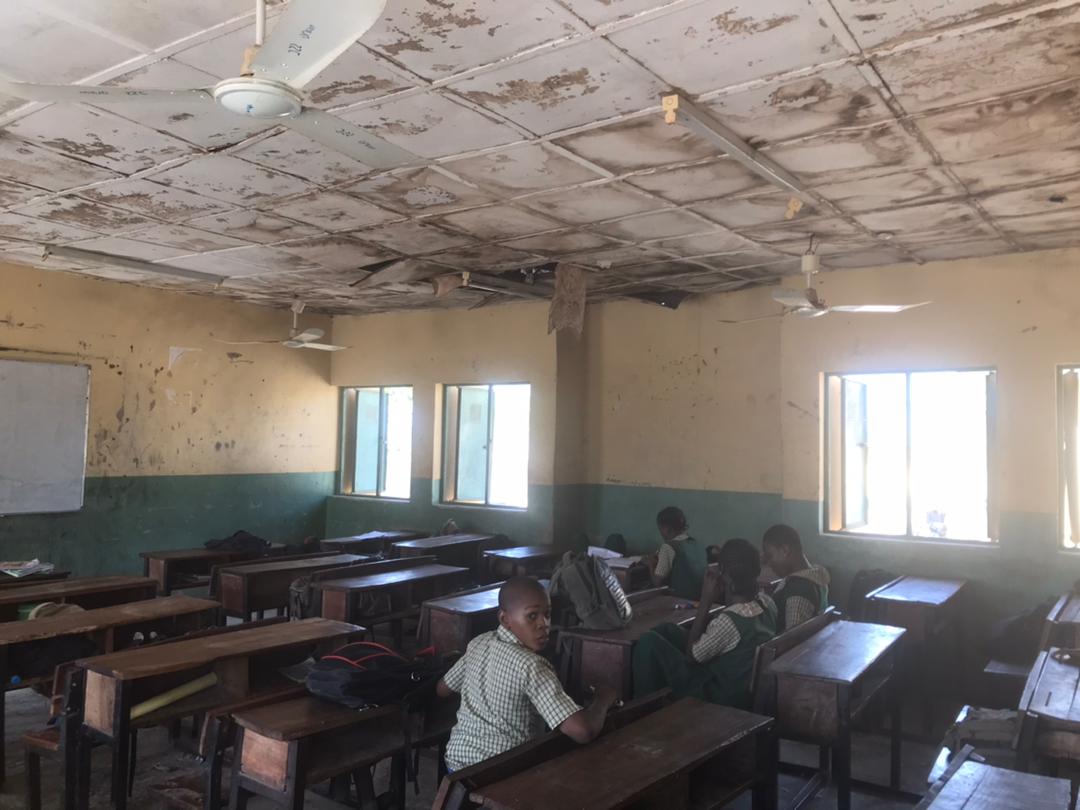
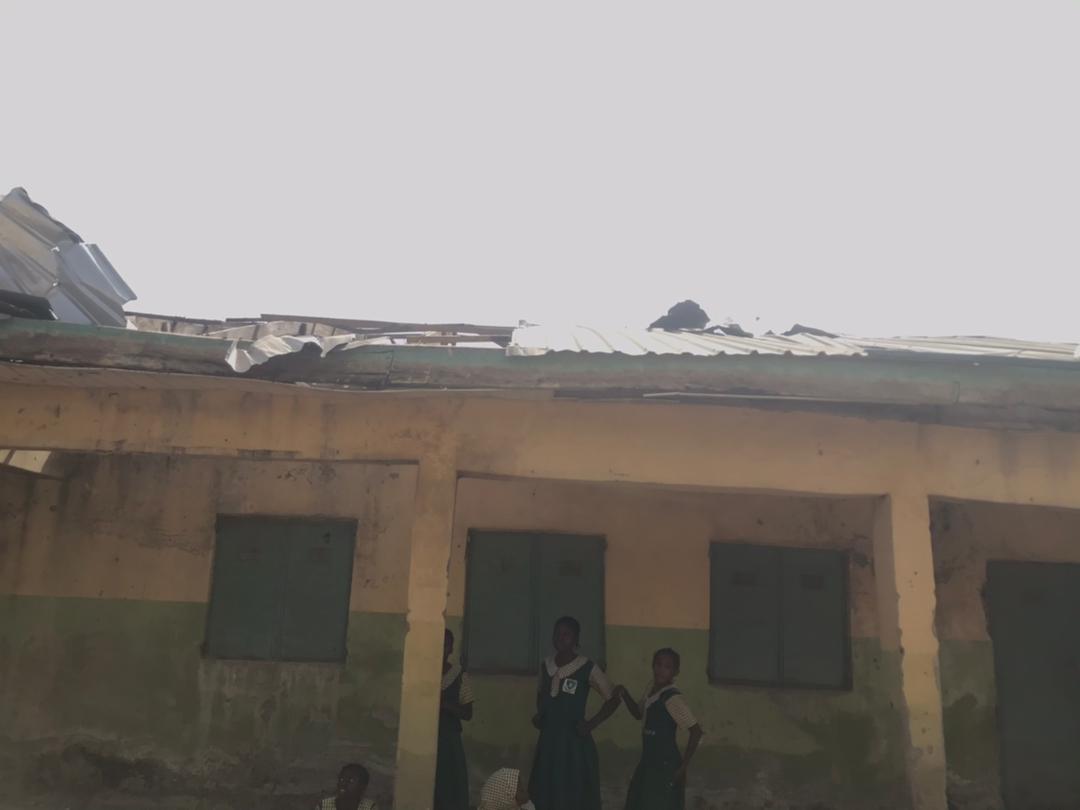
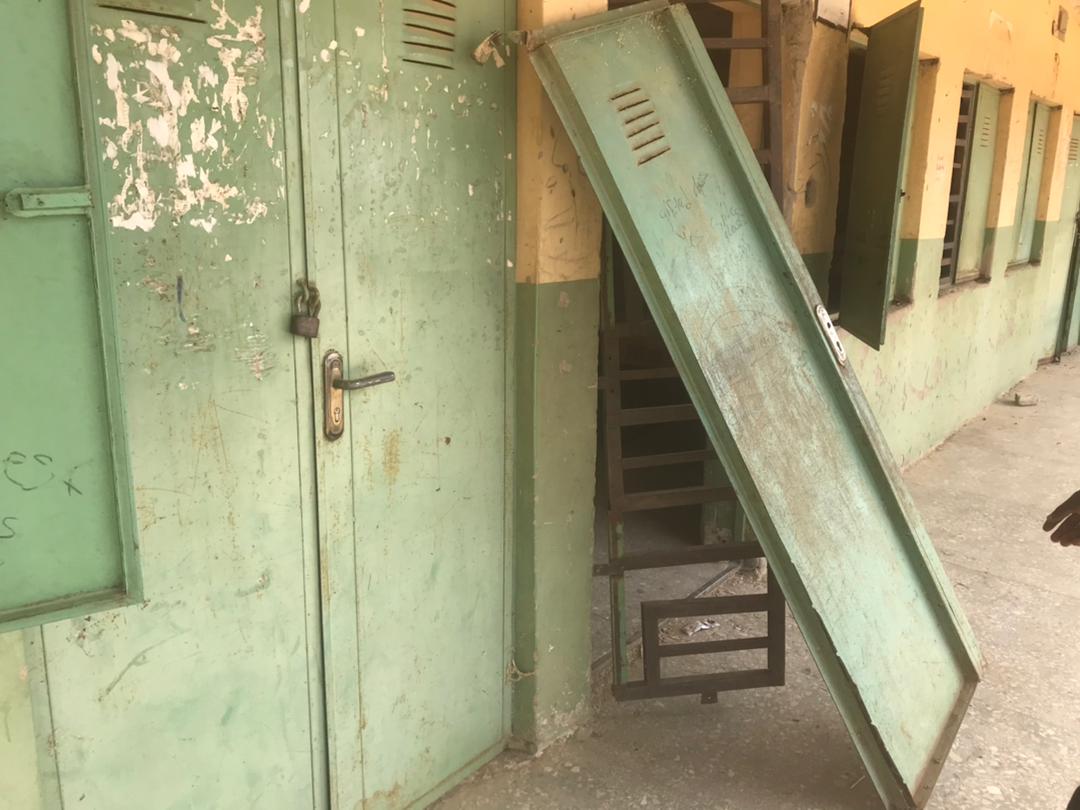
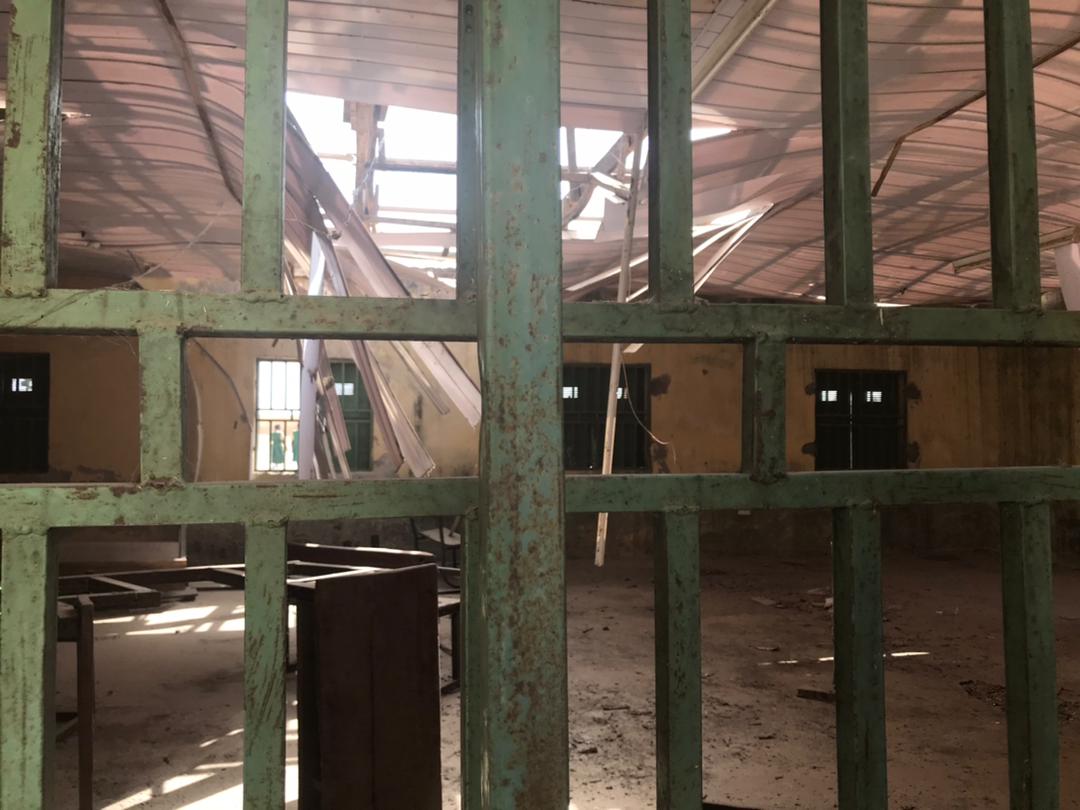
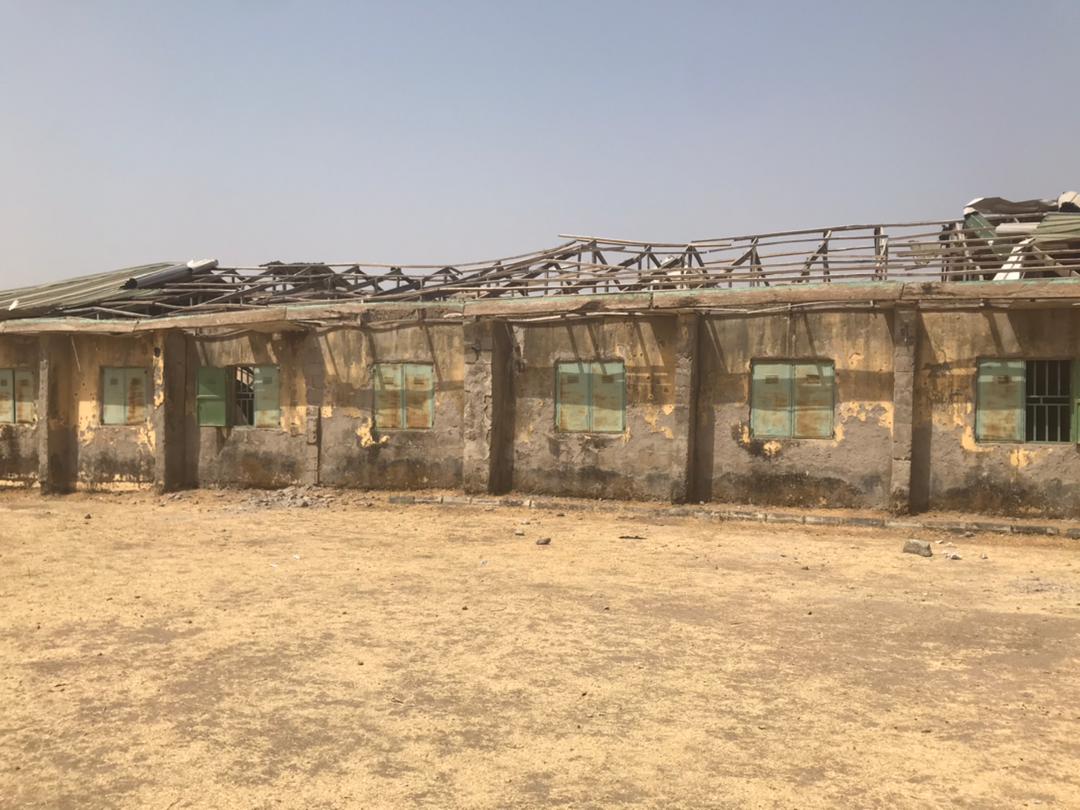
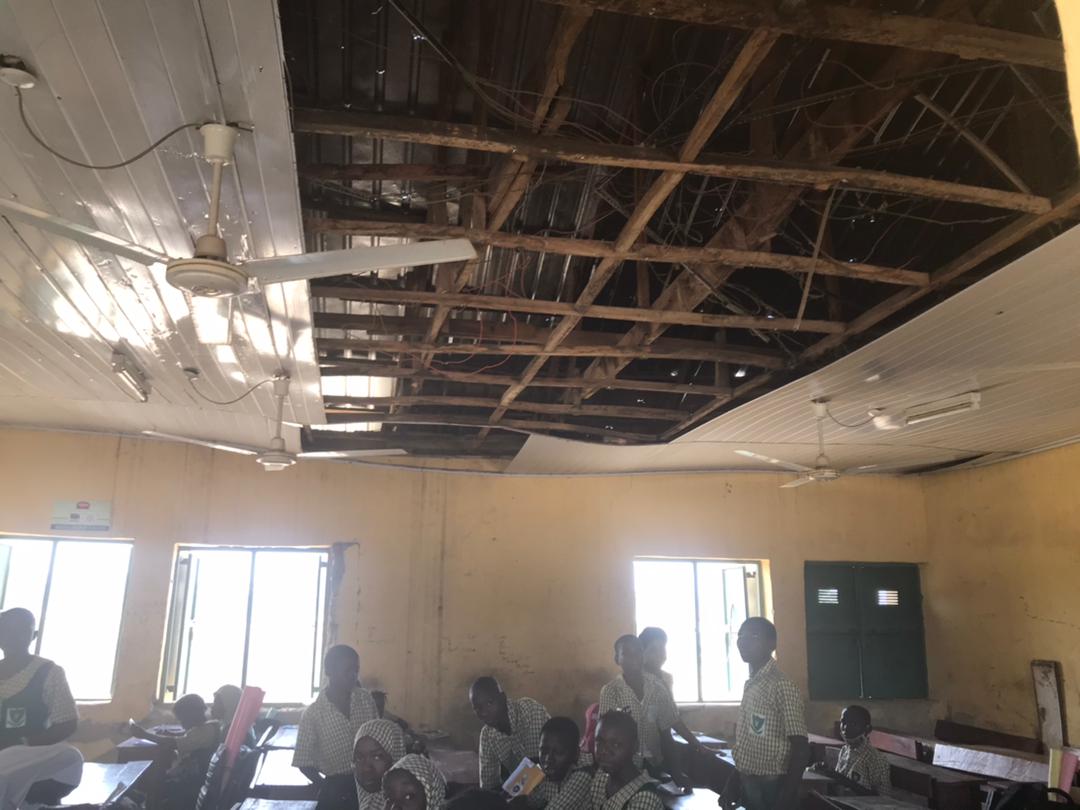
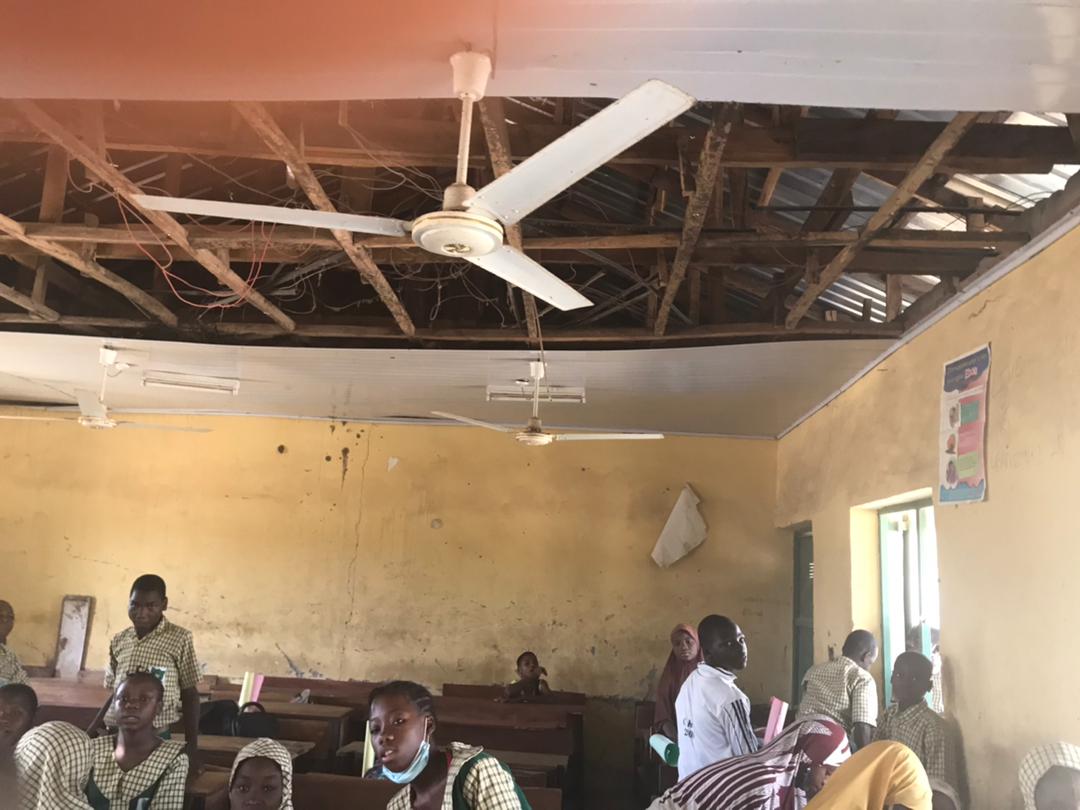
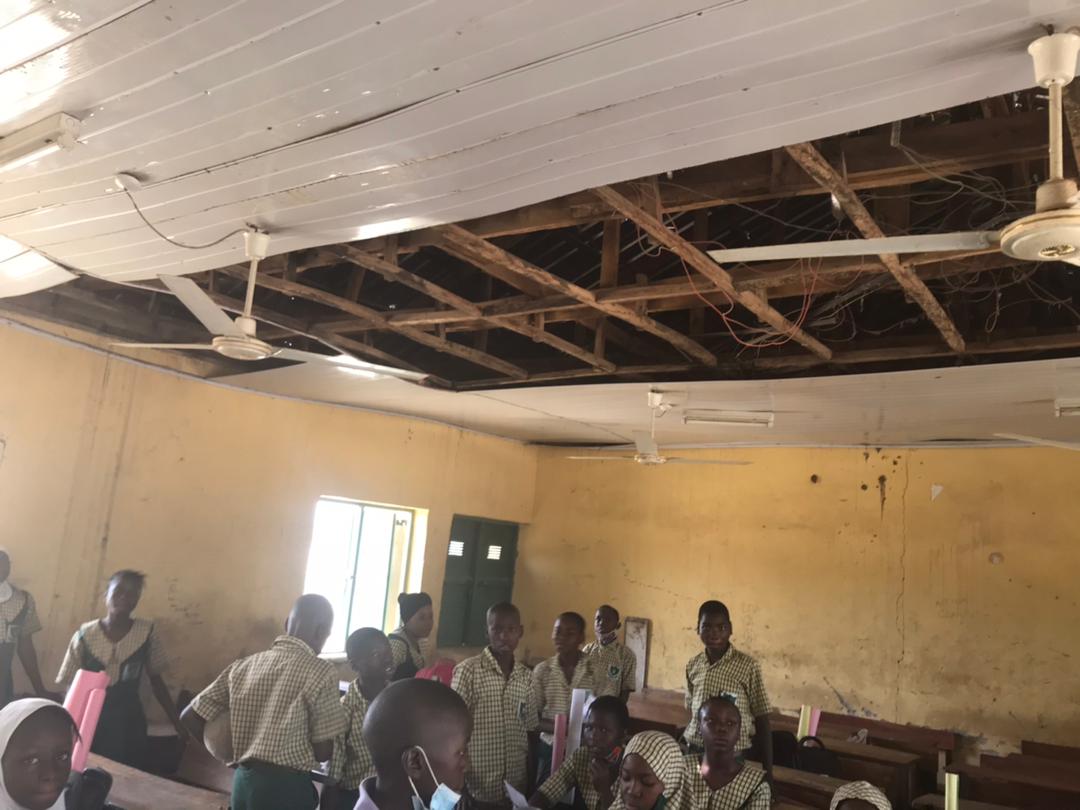
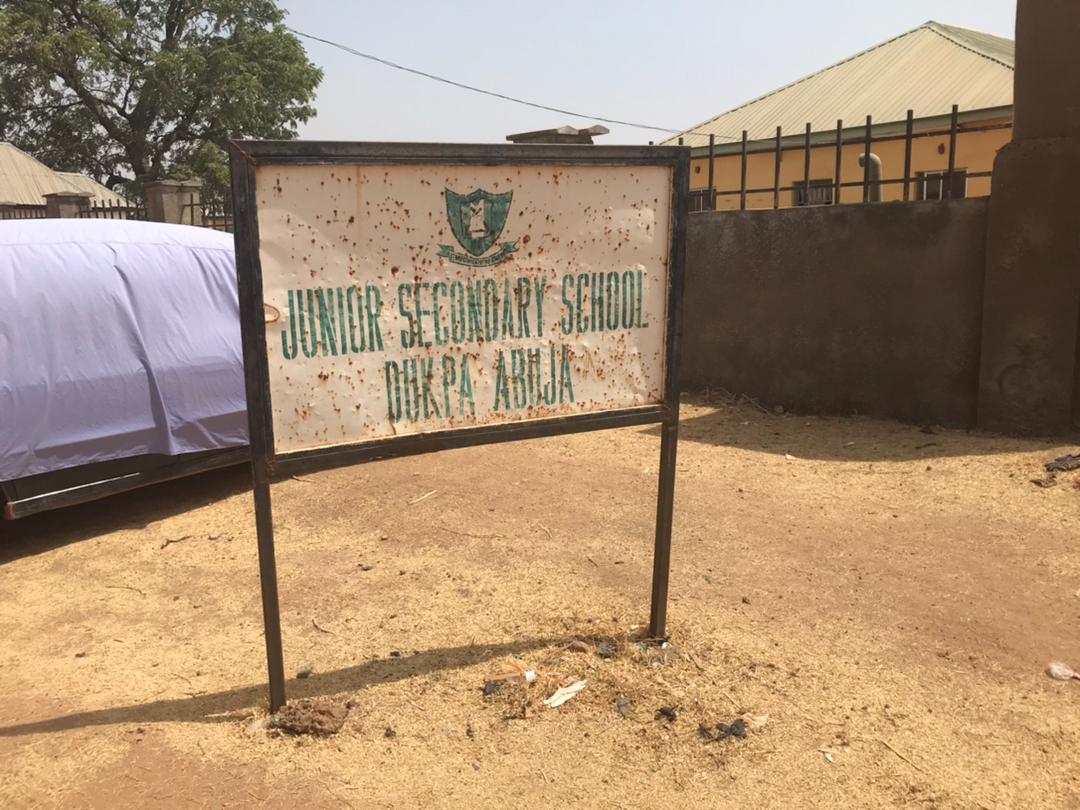
JUNIOR SECONDARY SCHOOL, KWAKU, KUJE
At JSS Kwaku, established in 1976, classrooms are without doors, ceilings are damaged, and cracks adorn the walls. In one of the dilapidated buildings, hefty logs of wood serve as support to prevent collapse.
The school is also dealing with a water crisis. There is no proper sanitation in place as students defecate in unhygienic toilets.
The non-availability of water in the school, TheCable understands, causes serious discomfort to students and prevents some of them from using the toilet, with many opting to defecate in the bush.
Holiness Dikku, a JSS 1 student who shared her experience with TheCable, said she has avoided using the toilet facility so as not to contract a disease.
“I have not used the toilet since I was enrolled in the school because I don’t want to contract a disease because there is no water,” Dikku said.
“Some people defecate on a paper and dump it inside the toilet. But you won’t wash your hands because there is no water.”

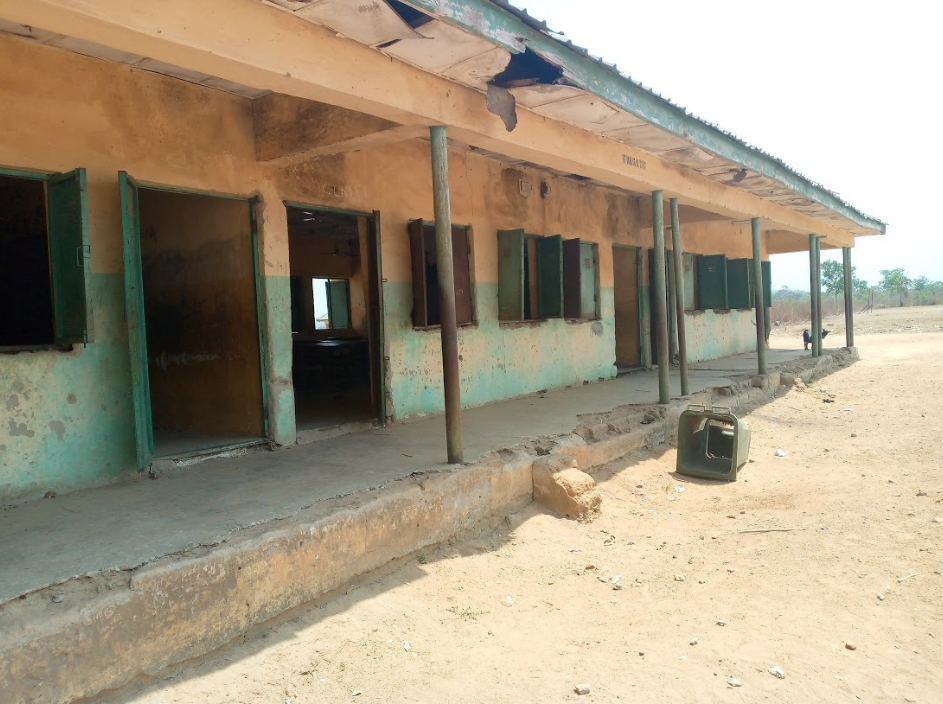
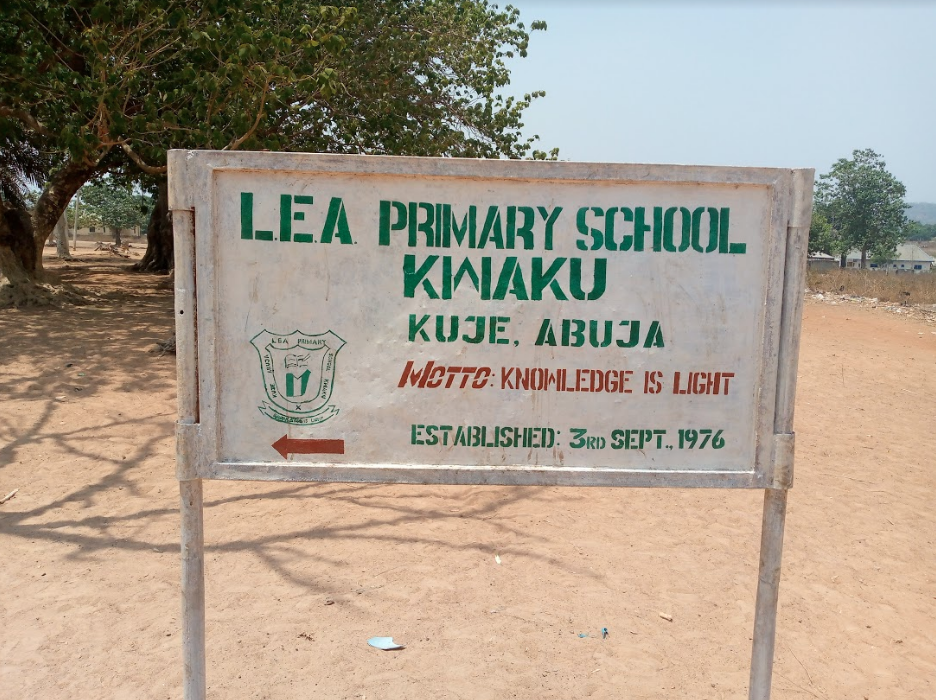
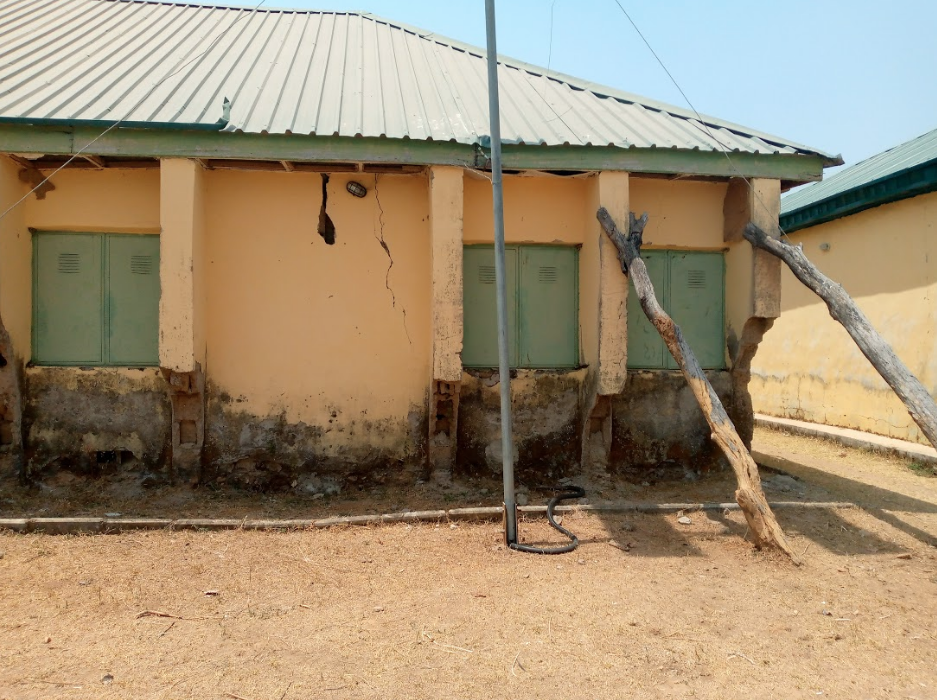
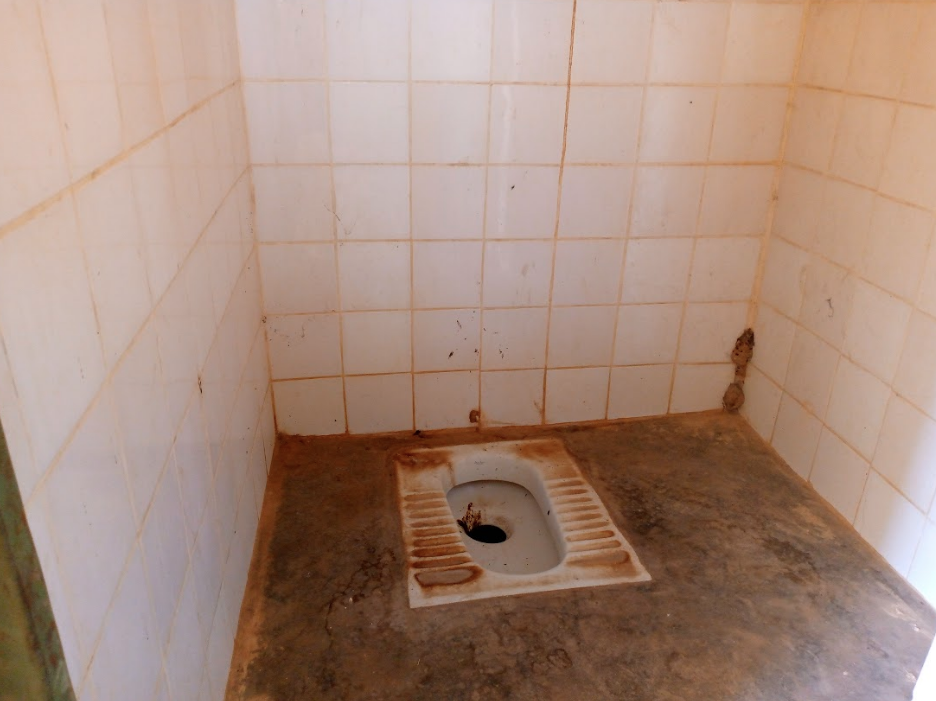
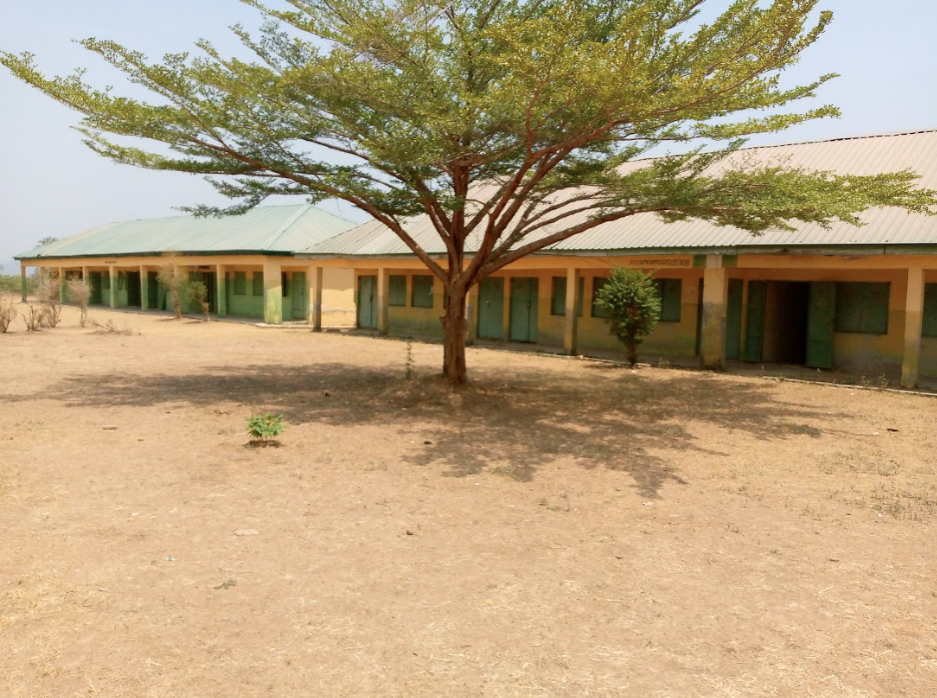
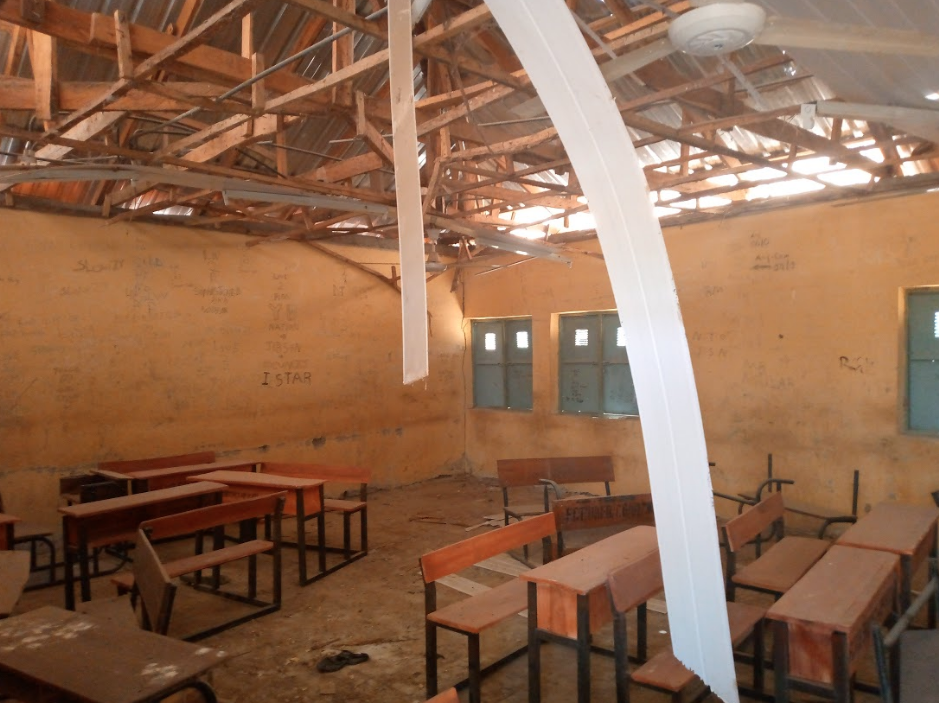
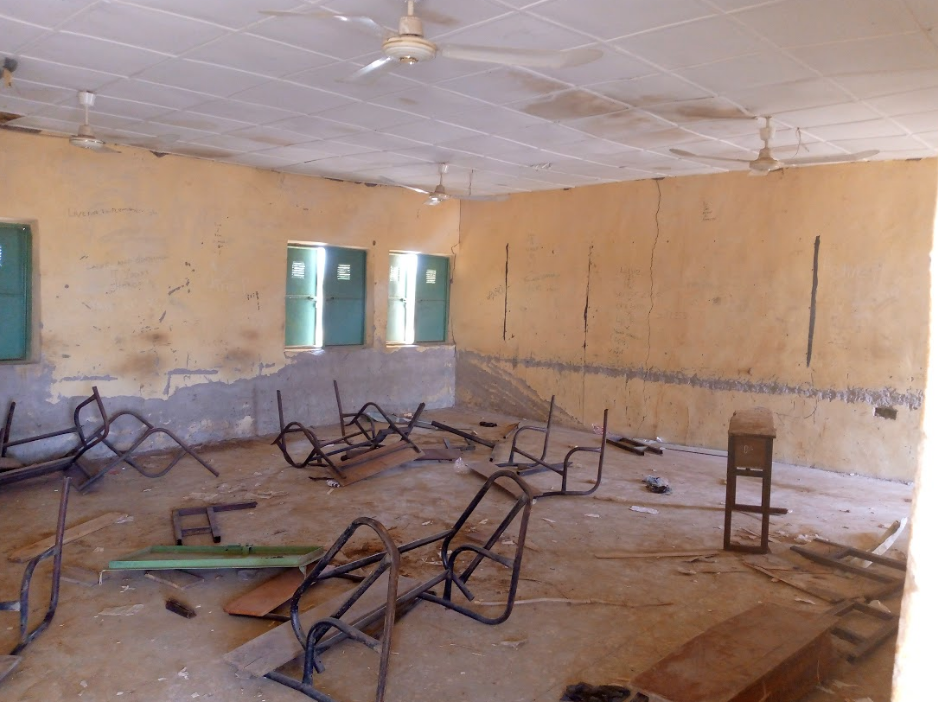
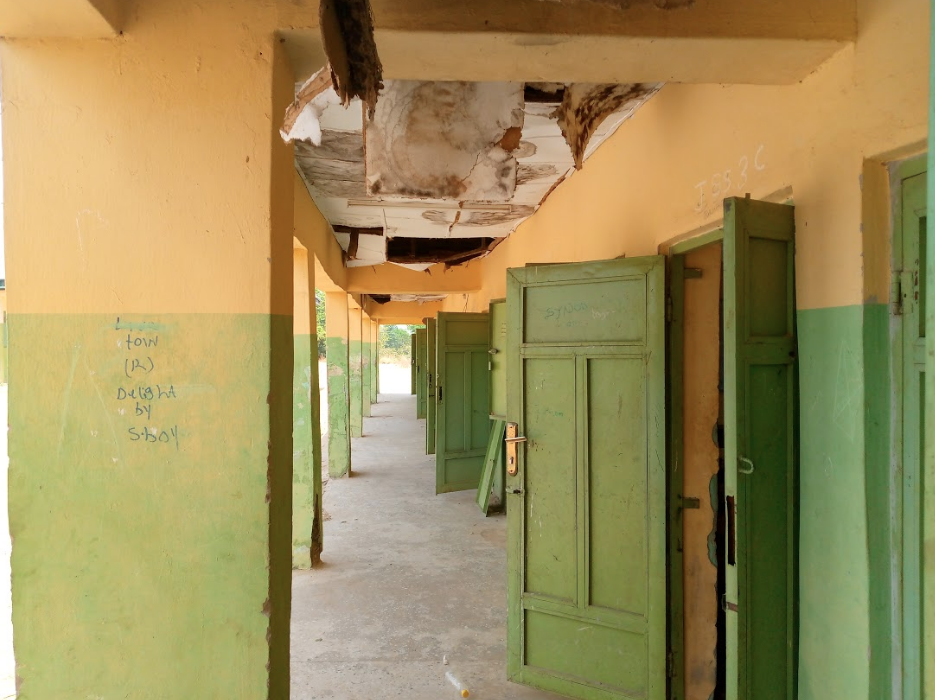
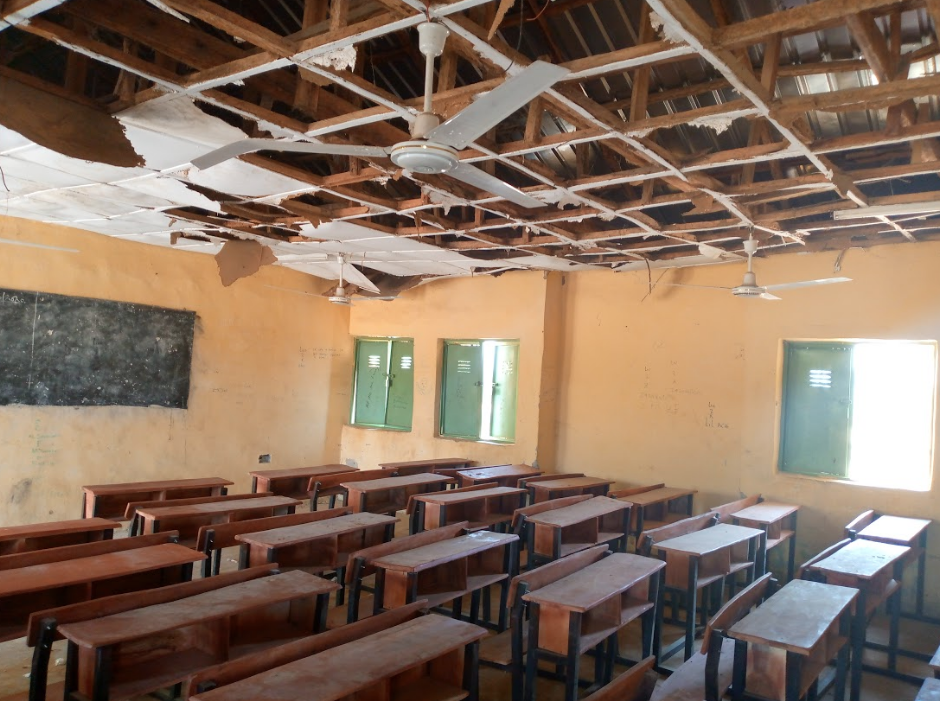

LEA PRIMARY SCHOOL, TUNGASARKI, KWALI
It was a similar tale — but with a sad twist — at LEA primary school, Tungasarki, Kwali.
Pupils have to trek long distances to fetch water when they arrive at school in the morning. It is only after this compulsory task has been completed that they can start learning.
The school also lacks a perimeter fence, making the compound a free grazing zone for cattle and at risk of attacks.
“We don’t have a perimeter fence, as you can see. It is this year that the bandits went to the Fulanis that are over there (pointing to a structure some metres away) and then the Fulanis left. If not so, every time, you will see them grazing inside this field. The pupils don’t play ball when they are present,” the teacher said.
“It is the bandits that drove the Fulanis away. They came to the Fulanis that are over there and kidnapped one of their community members. So when they saw that, they carried their cows and left.”
The lack of a perimeter fence, the teacher said, also results in wanton theft and destruction of school facilities.
“As you can see, the electrical appliances, the fans are no more in the classroom. The toilet facilities are not there. The ceilings have been removed,” the teacher added.
Bissala Ibrahim, the headteacher, lamented the insecure state of the school and lack of important furniture.
“We are not safe. We are in need of a fence. That is one complaint that we usually tell the government but up to date, we are yet to see the approval. You know the school is distant from the community. In fact, some criminal persons always vandalise our school, so we need fence seriously,” he said.
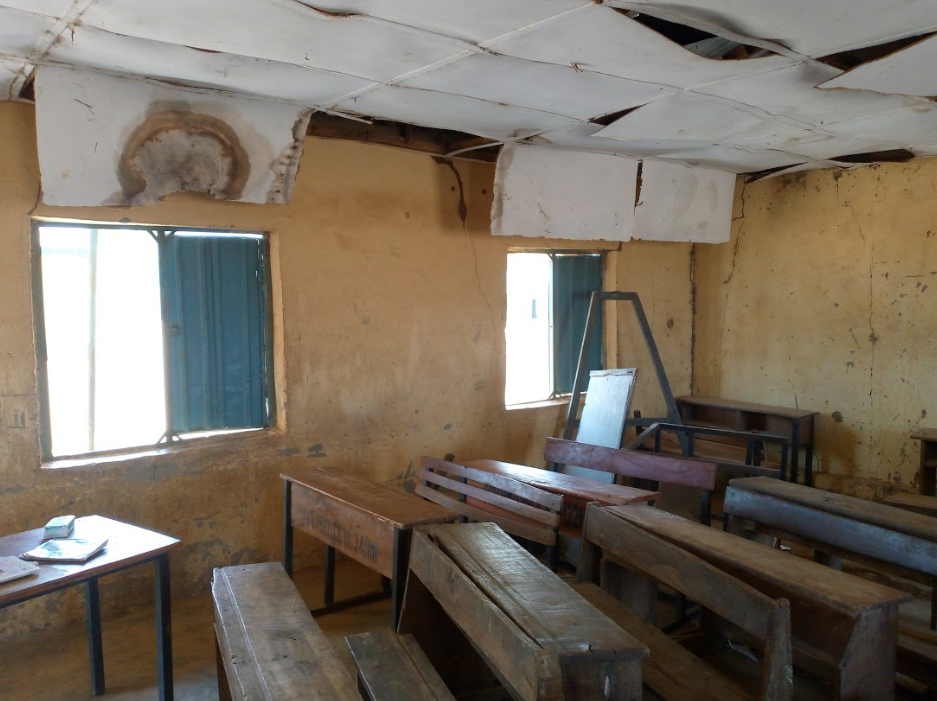
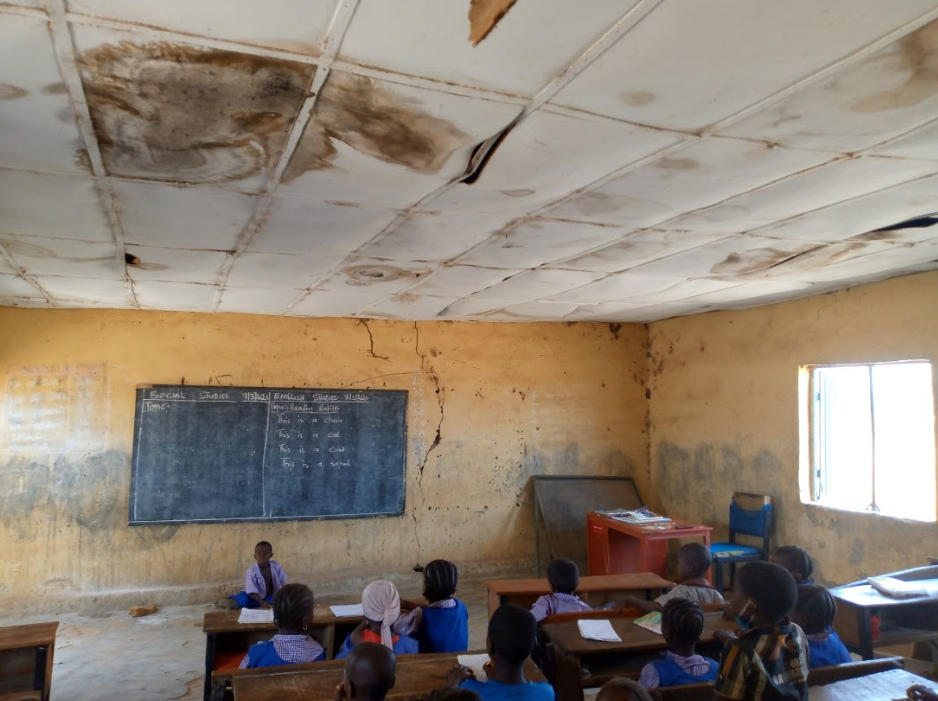
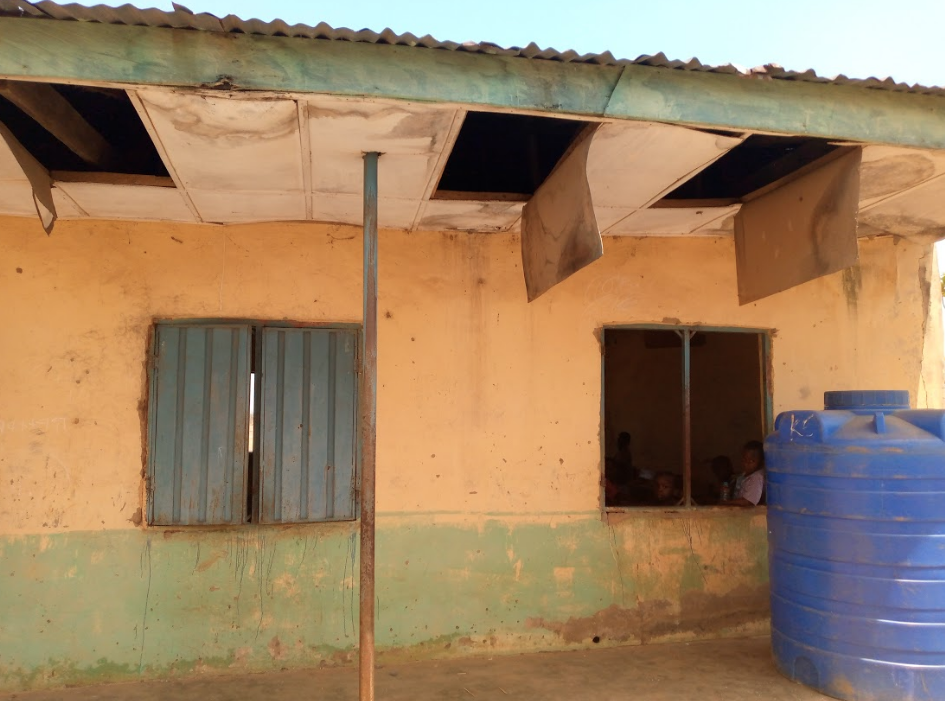
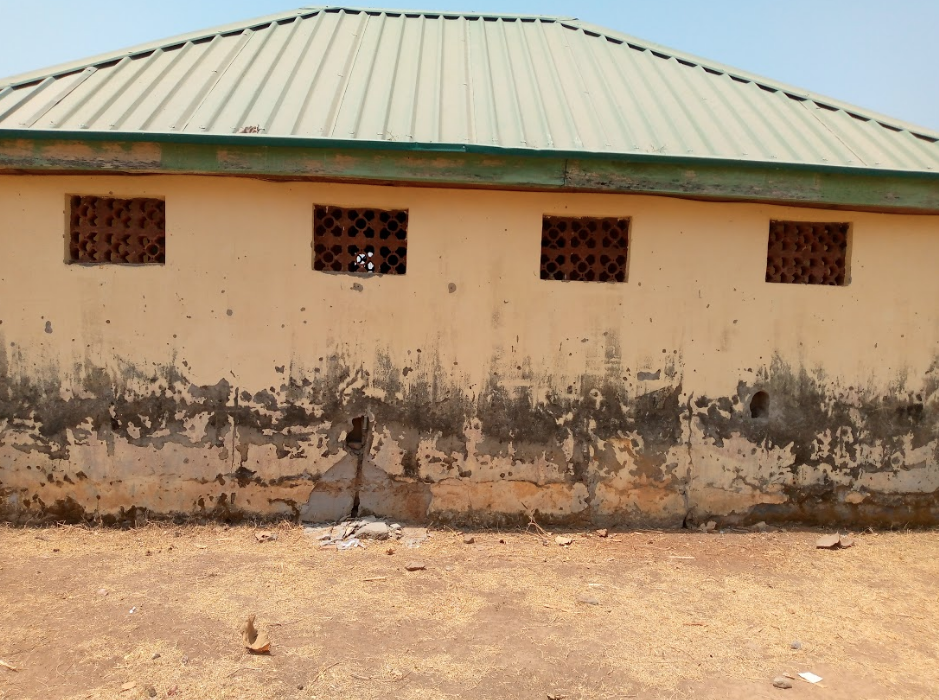
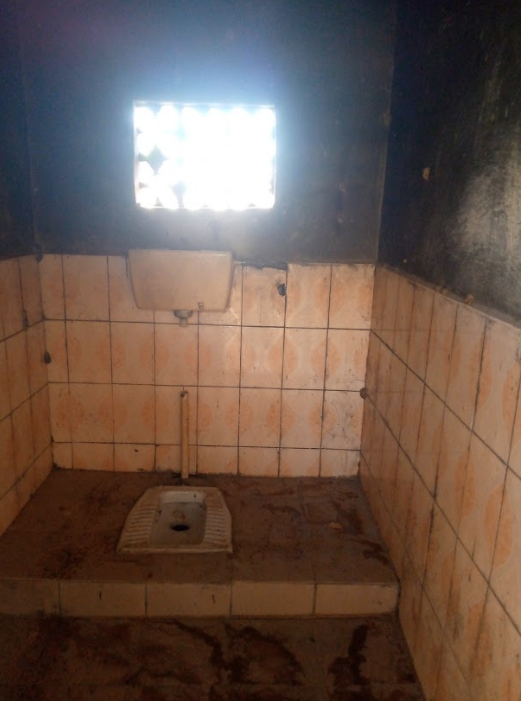
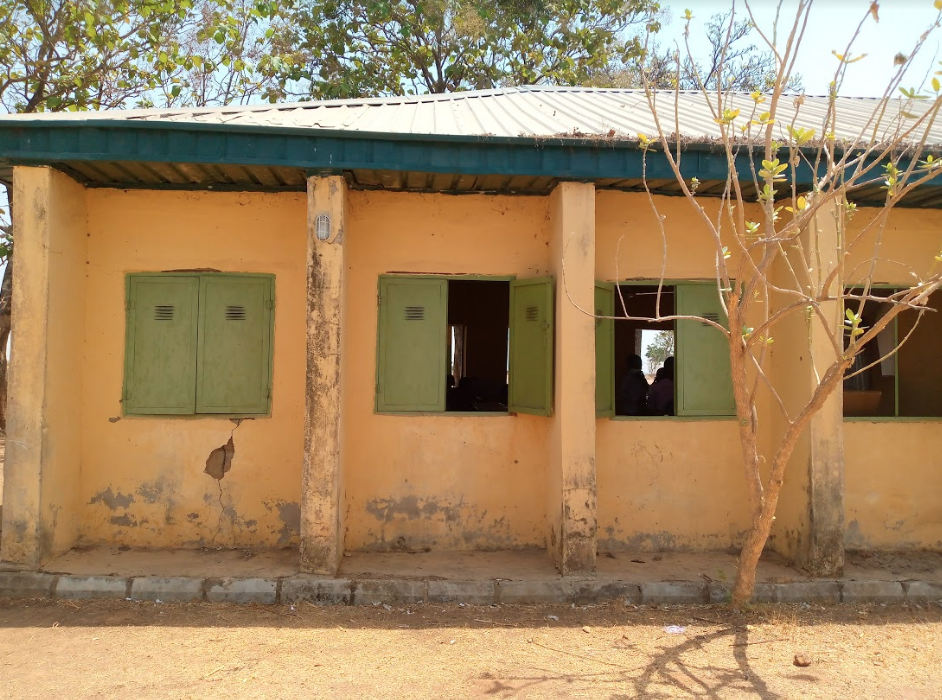


LEA PRIMARY SCHOOL, DAMAKUSA, KWALI
Abandoned, dilapidated, and collapsed structures are scattered around LEA primary school, Damakusa, Kwali. Of the lot visited, the school appears to be in the sorriest state.
There is no form of security while perimeter fencing is non-existent, leaving the students at risk of any potential attack.
Idris Adamu, the headteacher, told TheCable that several efforts made by the school and the parent-teacher association (PTA) to call the attention of the authorities to their plight have been unfruitful.
“We don’t have security but those who are in the urban areas have, we in the rural area don’t have,” Adamu said.
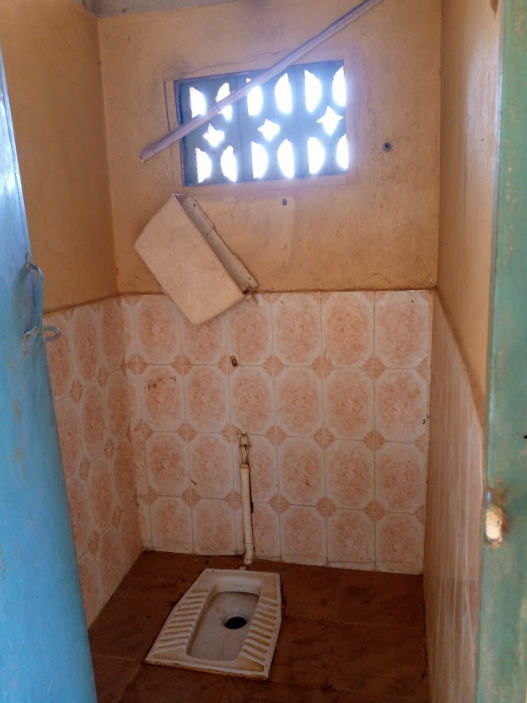
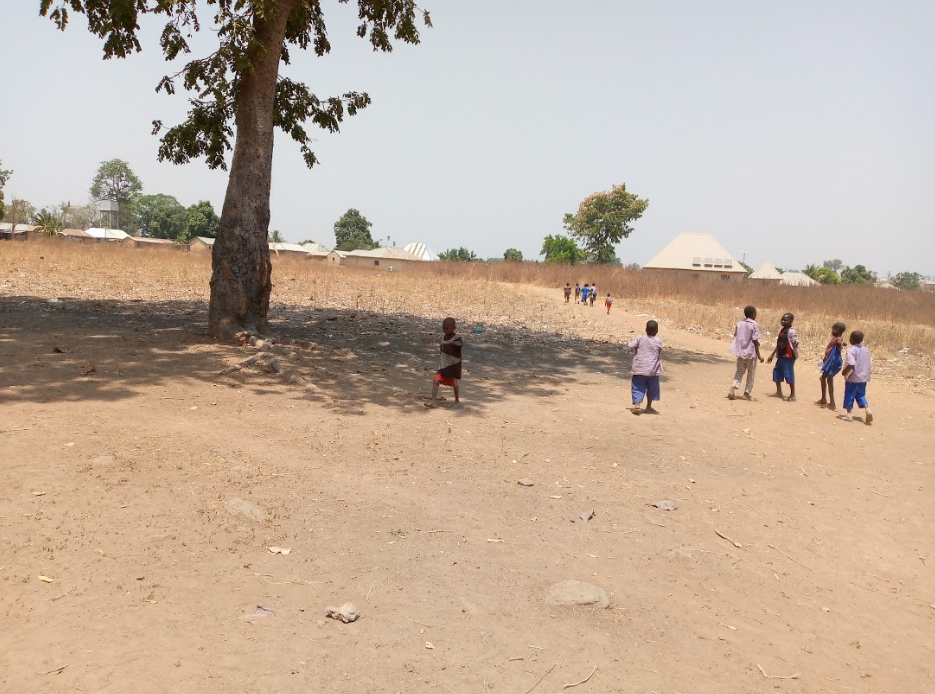

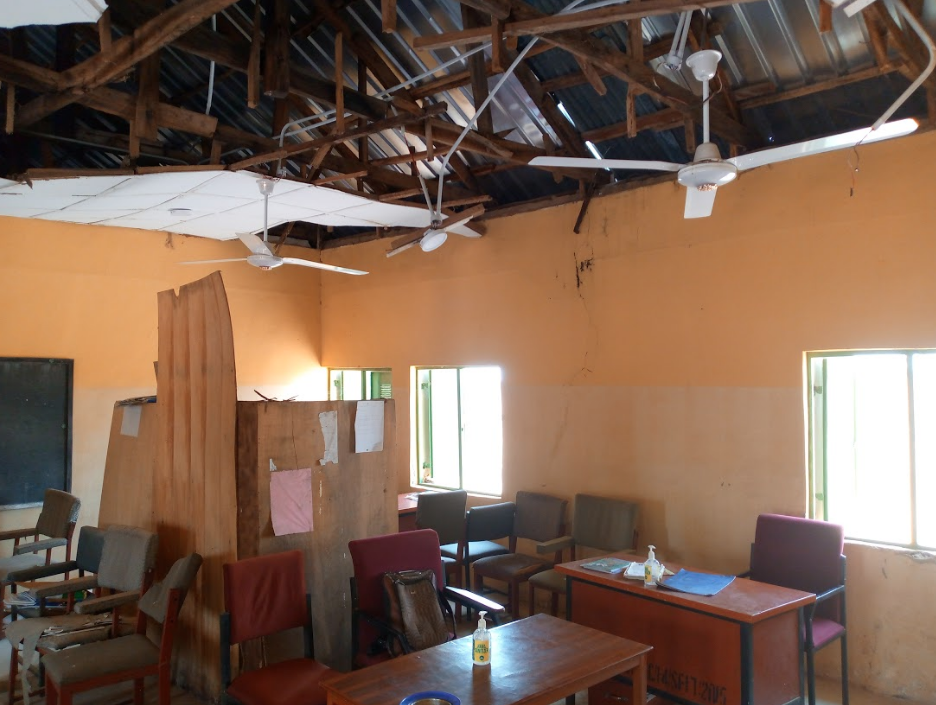
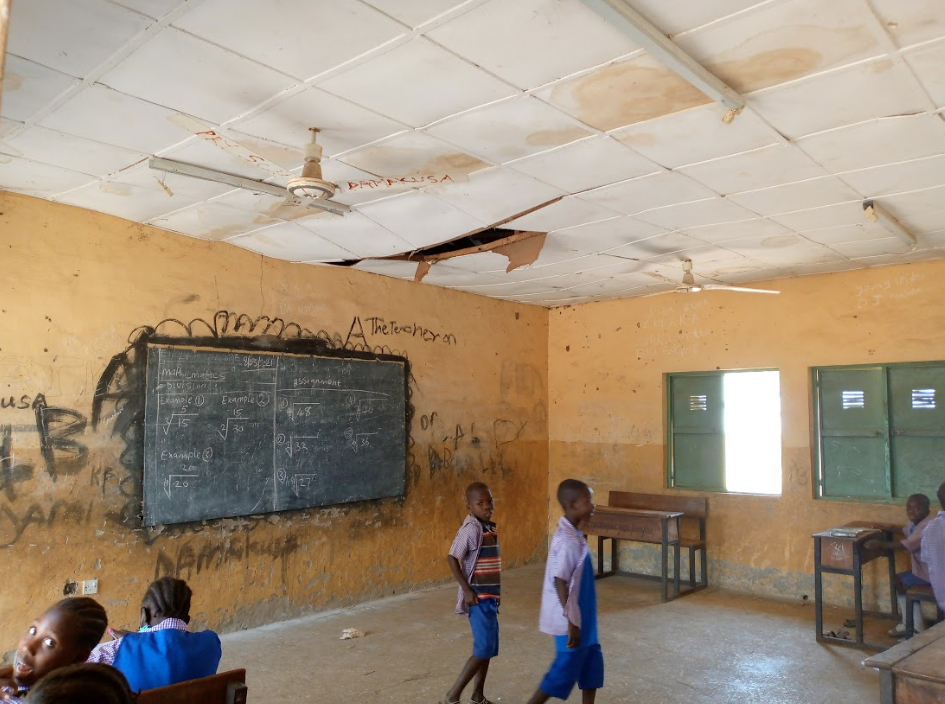
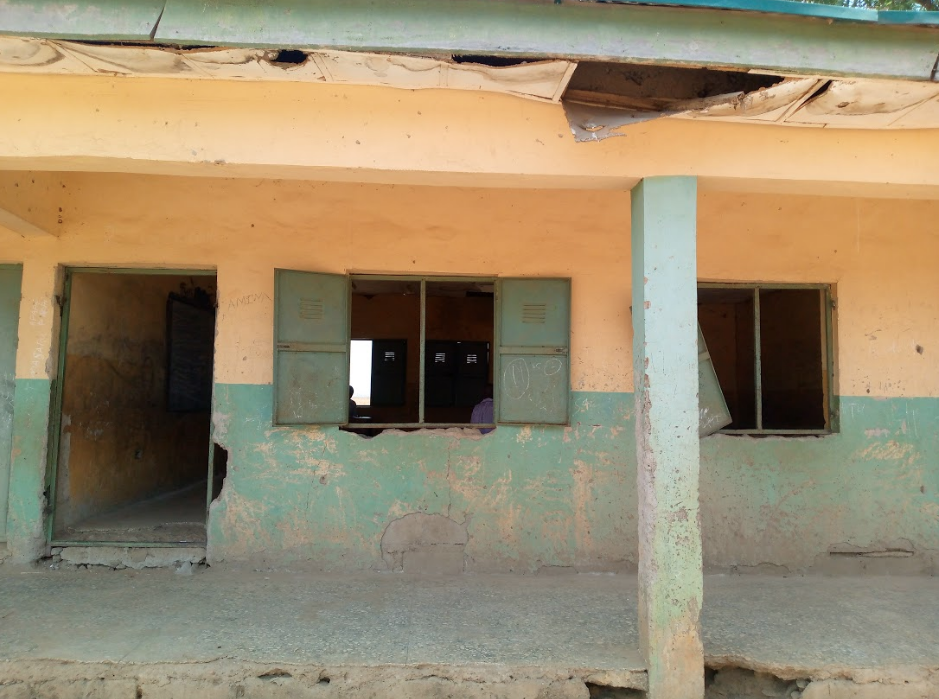
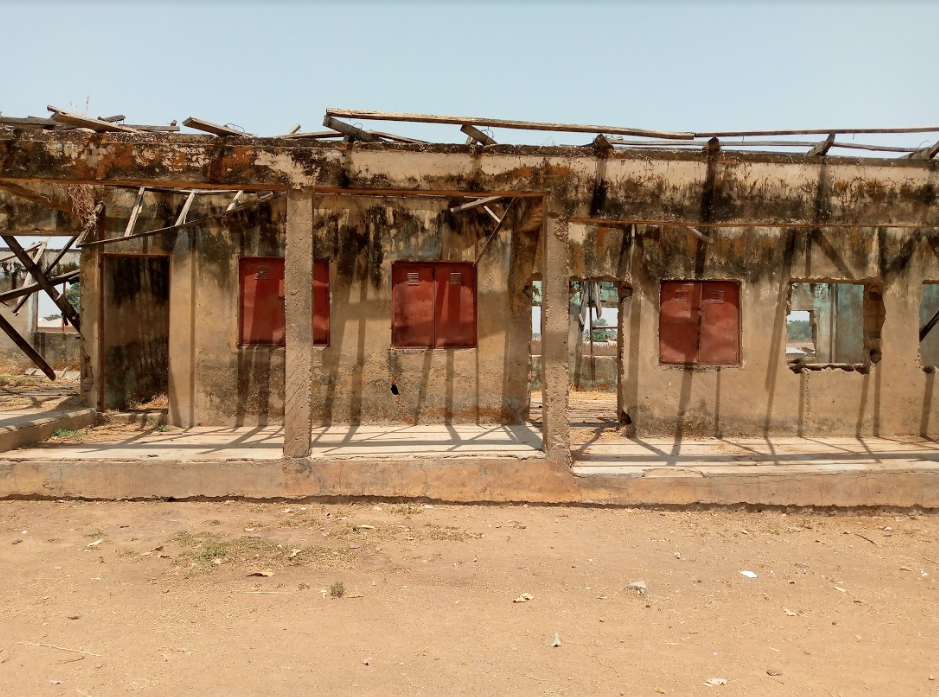
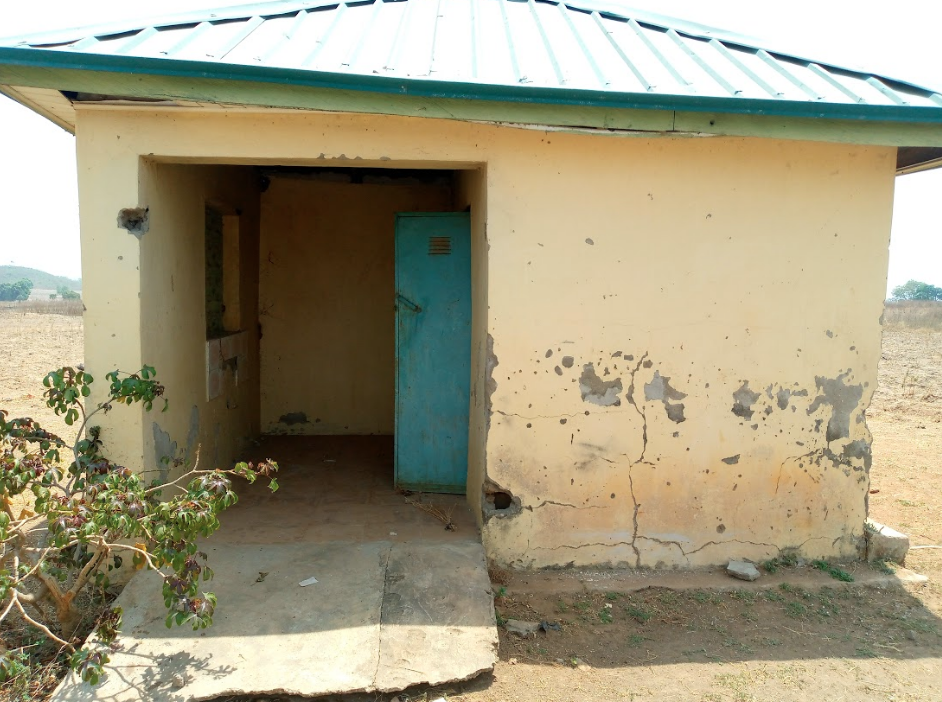
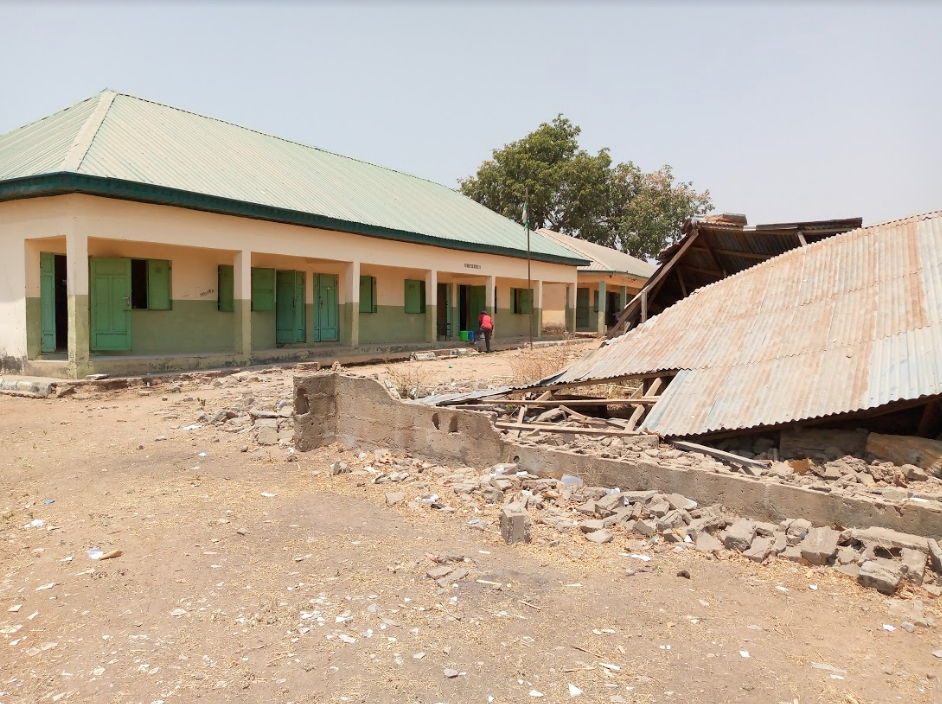
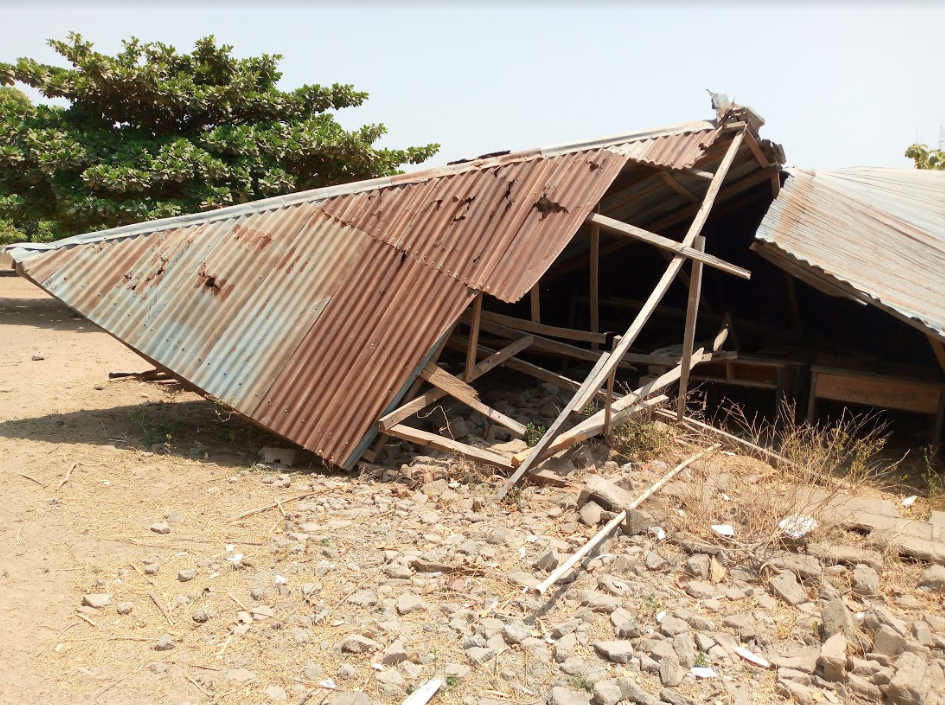
SECURITY, SAFETY RISKS
The state of the schools constitutes a number of risks to the students. Due to the leaks in the ceilings, water could come in contact with electrical wiring and lighting, which can cause sparks. These sparks could lead to a fire outbreak and can also result in electric shocks.
Another risk is a potential collapse of the weakening ceilings of the classrooms and dilapidated buildings. If this happens while the students are in the building, many of them could be left injured.
Timothy Avele, a security expert, spoke on the absence of perimeter fencing and security personnel in most of the schools — in spite of the recent surge in abductions of schoolchildren in the northern part of the country.
Although there have not been reported cases of abductions in FCT schools, building a perimeter fence has become more important than ever.
“A good perimeter fence with well-trained security personnel mounted gates is the first line of defense for schools in this era of student kidnapping. So while having a good perimeter fence is needed and could help control entry and exit, on itself is not enough to thwart determined heavily armed terrorists or bandits,” Avele said.
GOVERNMENT’S RESPONSE
When TheCable contacted Abubakar Sani, spokesman of Mohammed Musa Bello, FCT minister, he acknowledged the poor state of the schools but said the authorities are embarking on repairs based on the annual budgetary provision.
He said the schools have sent in their requests and that the FCT education secretariat will include them in the plan for the year once provision has been made for them in the budget.
“They have forwarded their requests and as soon as requests are received, the education secretariat will now put them in their action plans for each budget year,” Sani said.
“It is a procurement process and the procurement process is based on the annual budgetary provision.
“They draw up the action plan for a particular year and include all the requests that they have received and then plan for them.”
But until this happens, the schoolchildren will continue to learn in harsh conditions and remain susceptible to avoidable safety and security risks.
Reporters: Jesupemi Are and Samuel Akpan
This is a special investigative project by Cable Newspaper Journalism Foundation (CNJF) in partnership with TheCable, supported by the OSIWA. Published materials are not views of the OSIWA.
